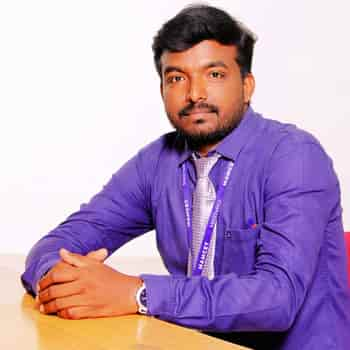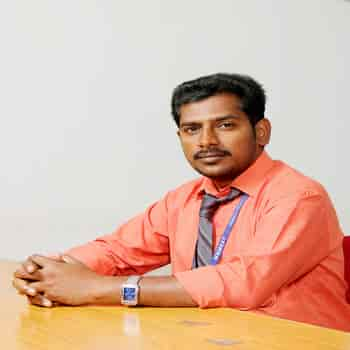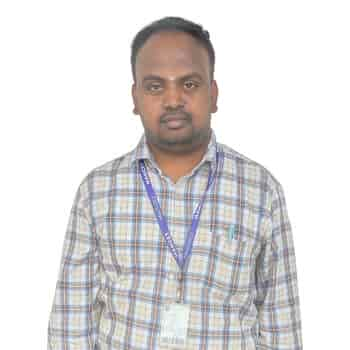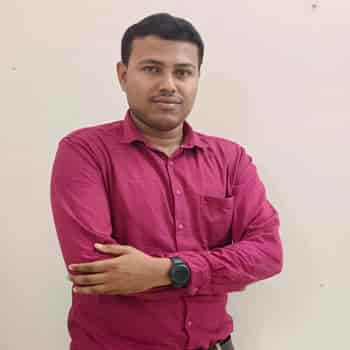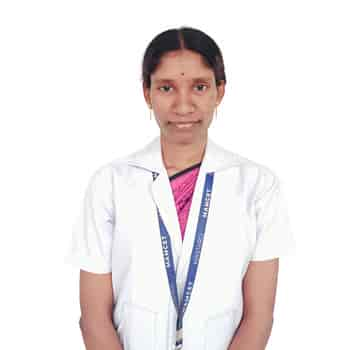
- About Department
- Vision, Mission,PEO
- POs, PSOs
- Faculty
- Laboratory
- Placement
- Research
- Events Organized
- Curriculum & Syllabus
- Course Materials
- Mou
- Industry Interaction
- News & Magazine
- Value Added Courses
- Contact Us
About Department
The department of civil engineering was established in 2010 under the affiliation of Anna University, Chennai. Currently the department offers a the following programmes
- BE-Civil Engineering
- ME-Structural Engineering.
The department is supported by well qualified faculty in the field of specialization like structural engineering, Transportation engineering and Environmental engineering. Through an effective teaching and learning process the department has produced university rank holders in UG and PG under Anna University, Chennai. All laboratories in the department are well equipped and they are maintained by qualified technical people in each laboratory. The department is marching forward to achieve in every field of specialization in Civil Engineering by conducting seminars, guest lectures, webinars, and workshops on the latest developments. The industrial visit and expert’s lectures are arranged for the students regularly in order to enrich the practical knowledge of students in addition to their academics which in turn make the students fit for practical field in their future.
Vision
Mission
- Equip the students with the fundamental knowledge and core expertise along with hands on experience to become highly competent civil engineers.
- Facilitate and empower the students through state of art laboratories, comprehensive field studies, industrial consultancy and research.
- Inculcate leadership skills, ethical values, professionalism and team work to become competent entrepreneurs and leaders.
Programe Educational Objectives(PEO)
- Plan, analyze and design eco-friendly sustainable solutions for technological challenges in the industry and society.
- Engage in lifelong learning and research with diversified career opportunities achieving excellence in decision-making and engineering practices.
- Exhibit professionalism, ethical values with interpersonal skills and team spirit to serve the organization and society.
PROGRAM OUTCOMES (POs)
-
Engineering Graduates will be able to
-
PO 1 Engineering Knowledge: Apply the knowledge of mathematics, science, engineering Fundamentals, and an engineering specialization to the solution of complex engineering problems
-
PO 2 Problem Analysis: Identify, formulate, review research literature, and analyze complex engineering problems reaching substantiated conclusions using first principles of mathematics, natural sciences, and engineering sciences.
-
PO 3 Design/ Development of Solutions: Design solutions for complex engineering problems and design system components or processes that meet the specified needs with appropriate consideration for public health and safety, and cultural, societal, and environmental considerations.
-
PO 4 Conduct Investigations of Complex Problems: The problems: that cannot be solved by straightforward application of knowledge, theories and techniques applicable to the engineering discipline. That may not have a unique solution. For example, a design problem can be solved in many ways and lead to multiple possible solutions. That requires consideration of appropriate constraints/requirements not explicitly given in the problem statement. (Like: cost, power requirement, durability, product life, etc.) Which need to be defined (modeled) within appropriate mathematical framework. That often requires use of modern computational concepts and tools.
-
PO 5 Modern Tool Usage: Create, select, and apply appropriate techniques, resources, and modern engineering and IT tools including prediction and modelling to complex engineering activities with an understanding of the limitations.
-
PO 6 The Engineer and Society: Apply reasoning informed by the contextual knowledge to assess societal, health, safety, legal and cultural issues and the consequent responsibilities relevant to the professional engineering practice.
-
PO 7 Environment and Sustainability: Understand the impact of the professional engineering solutions in societal and environmental contexts, and demonstrate the knowledge of, and need for sustainable development.
-
PO 8 Ethics: Apply ethical principles and commit to professional ethics and responsibilities and norms of the engineering practice.
-
PO 9 Individual and Team Work: Function effectively as an individual, and as a member or leader in diverse teams, and in multidisciplinary settings.
-
PO 10 Communication: Communicate effectively on complex engineering activities with the engineering community and with society at large, such as, being able to comprehend and write effective reports and design documentation, make effective presentations, and give and receive clear instructions.
-
PO 11 Project Management and Finance: Demonstrate knowledge and understanding of the engineering and management principles and apply these to one’s own work, as a member and leader in a team, to manage projects and in multidisciplinary environments.
-
PO 12 Life-long learning: Recognize the need for, and have the preparation and ability to engage in independent and life-long learning in the broadest context of technological change.
PROGRAM SPECIFIC OUTCOMES(PSOs)
-
Provide optimal solutions for real time problems in civil engineering projects through technical competence, modern tools and state of art practices.
-
Execute civil engineering construction and maintenance with ethical responsibility, social awareness and environmental sustainability.
Mr.P.Gopalsamy
Email: hod.civil@mamcet.com
UG : B.E.CIVILENGINEERING PG : M.E.STRUCTURAL ENGINEERING
Mr.A.Maria Stephen
Assistant Professor
UG : B.E.CIVILENGINEERING PG : M.E.STRUCTURAL ENGINEERING(PARTTIME)
Mr.A.Maria Stephen
Position: Assistant Professor
Categories: CIVIL
UG : B.E.CIVILENGINEERING
PG : M.E.STRUCTURAL ENGINEERING(PARTTIME)
Mr.U.Manikandan
Assistant Professor
UG : B.E.CIVILENGINEERING PG : M.E.STRUCTURAL ENGINEERING
Mr.U.Manikandan
Position: Assistant Professor
Categories: CIVIL
UG : B.E.CIVILENGINEERING
PG : M.E.STRUCTURAL ENGINEERING
Mr.D.Gokul Raj
Assistant Professor
UG : B.E.CIVILENGINEERING PG : M.E.STRUCTURAL ENGINEERING
Mr.D.Gokul Raj
Position: Assistant Professor
Categories: CIVIL
UG : B.E.CIVILENGINEERING
PG : M.E.STRUCTURAL ENGINEERING
Mr.M.Karthikeyan
Assistant Professor
Ms.M.Dhivyalakshmi
Assistant Professor
Mrs.S.KAUSALYA
Assistant Professor
UG : B.E.CIVILENGINEERING PG : M.E.STRUCTURAL ENGINEERING
Mrs.S.KAUSALYA
Position: Assistant Professor
Categories: CIVIL
UG : B.E.CIVILENGINEERING
PG : M.E.STRUCTURAL ENGINEERING
MR.SENTHILKUMAR K
Assistant Professor
UG : B.E.CIVILENGINEERING PG : M.E.STRUCTURAL ENGINEERING
MR.SENTHILKUMAR K
Position: Assistant Professor
Categories: CIVIL
UG : B.E.CIVILENGINEERING
PG : M.E.STRUCTURAL ENGINEERING
Laboratory Specification
Laboratory Overview:
The Soil Mechanics Laboratory is a fundamental facility in civil engineering that focuses on the study of the physical and mechanical properties of soils. The laboratory plays a crucial role in understanding soil behavior, which is essential for designing and constructing various civil engineering structures such as foundations, embankments, retaining walls, and tunnels.
Equipment Catalog:
Soil Sampling Tools, Graduated Cylinders and Beakers, Sieve Shaker, Sieve Sets, Hydrometer, Drying Oven, Weigh Balances, Liquid Limit Device, Plastic Limit Device, Proctor Compaction Apparatus, Molds and Rammer, Constant Head Permeameter, Variable Head Permeameter, Consolidometer, Load Frames , Direct Shear Apparatus , Triaxial Testing Machine
Laboratory Overview:
The Surveying Laboratory is a crucial facility in civil engineering that focuses on the principles and practices of surveying, which is the science of measuring and mapping the Earth's surface. This laboratory provides students and professionals with hands-on experience in using surveying instruments and techniques for various applications in civil engineering and land development.
Equipment Catalog:
Total Station, theodolite, dumpy level, ranging rod, levelling staff, prismatic compass, chain, tape, tripod, plane table surveying, alidade, plumbob.
Laboratory Overview:
The Environmental Engineering Laboratory is a specialized facility within the field of civil engineering that focuses on studying and analyzing environmental parameters. This laboratory is dedicated to conducting experiments and tests related to water quality.
Equipment Catalog: incubator, water sampling equipment’s, pipette, burette measuring jar, flask, oven, ph meter, electrodes, kjhedal nitrogen.
Laboratory Overview:
the Strength of Materials Laboratory, a pivotal facility in our engineering department designed to provide students with hands-on experience in understanding the mechanical behavior of materials. This laboratory is instrumental in translating theoretical principles learned in classrooms into practical applications through experimentation and analysis. The mission of the Strength of Materials Laboratory is to foster a comprehensive understanding of material properties and behaviors under different loading conditions. We aim to empower students with practical knowledge that is essential for their success in various engineering disciplines.
Equipment Catalog:
Universal Testing Machines (UTM-400KN), Torsion Testing Machines, Impact Testing Equipment, Hardness Testing Instruments, Strain Gauge Application Setup, Deflection Measurement Devices
Laboratory Overview: The Highway Engineering Laboratory is to provide a hands-on learning environment for students and researchers to explore and understand the principles, materials, and technologies used in the design and construction of highways. We strive to bridge the gap between theoretical knowledge and practical applications in the field of transportation engineering. It is a dynamic space where theoretical concepts come to life, and students gain practical insights into the complex world of highway engineering.
Equipment Catalog: Marshall Stability Test Apparatus, Aggregate Impact Value (AIV) Apparatus, Sieve Shaker, Ductility Test Apparatus, Penetrometer Apparatus, Viscosity Apparatus ,Flakiness and Elongation index Apparatus
Laboratory Overview: Computer-Aided Design and Drafting (CADD) Laboratory, a state-of-the-art facility designed to empower students, professionals, and researchers in the field of design and engineering. CADD Laboratory is equipped with cutting-edge hardware and industry-standard software to facilitate hands-on learning, innovation, and collaboration in the digital design realm.
Equipment Catalog: AutoCAD, Revit or ArchiCAD, Civil 3D, SketchUp
Laboratory Overview: Advanced Structural Engineering Laboratory, a cutting-edge facility at the forefront of structural analysis, experimentation, and research. Our laboratory is designed to provide students, researchers, and industry professionals with a state-of-the-art environment to explore and advance the understanding of structural behavior and performance.
Equipment Catalog: Load testing frame
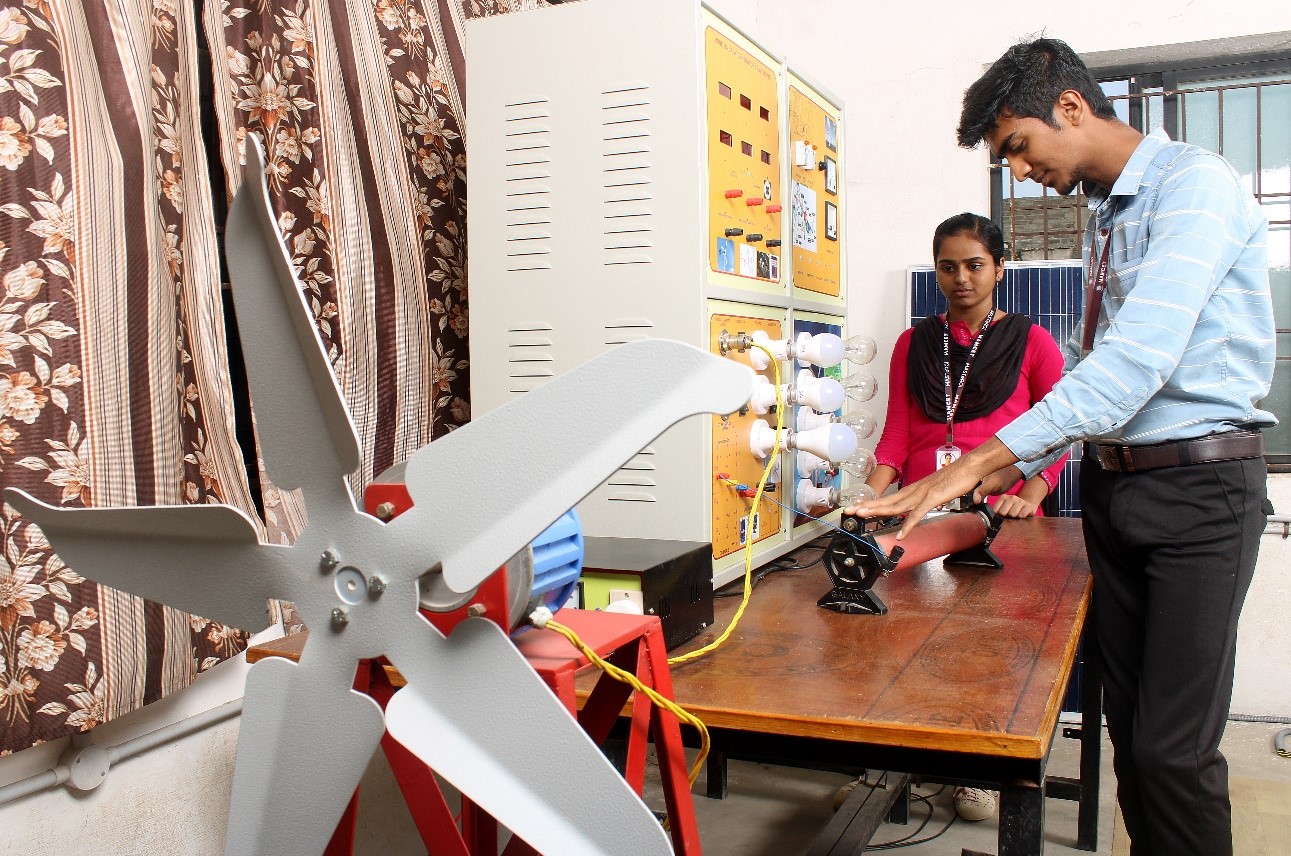
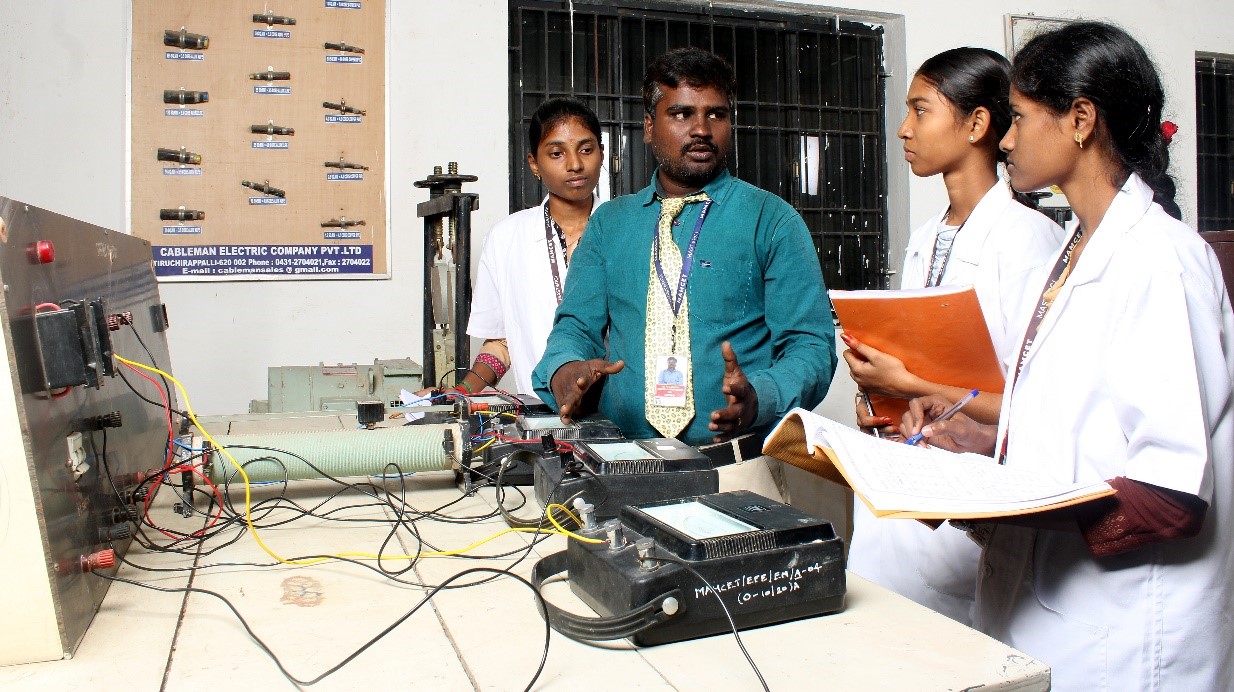
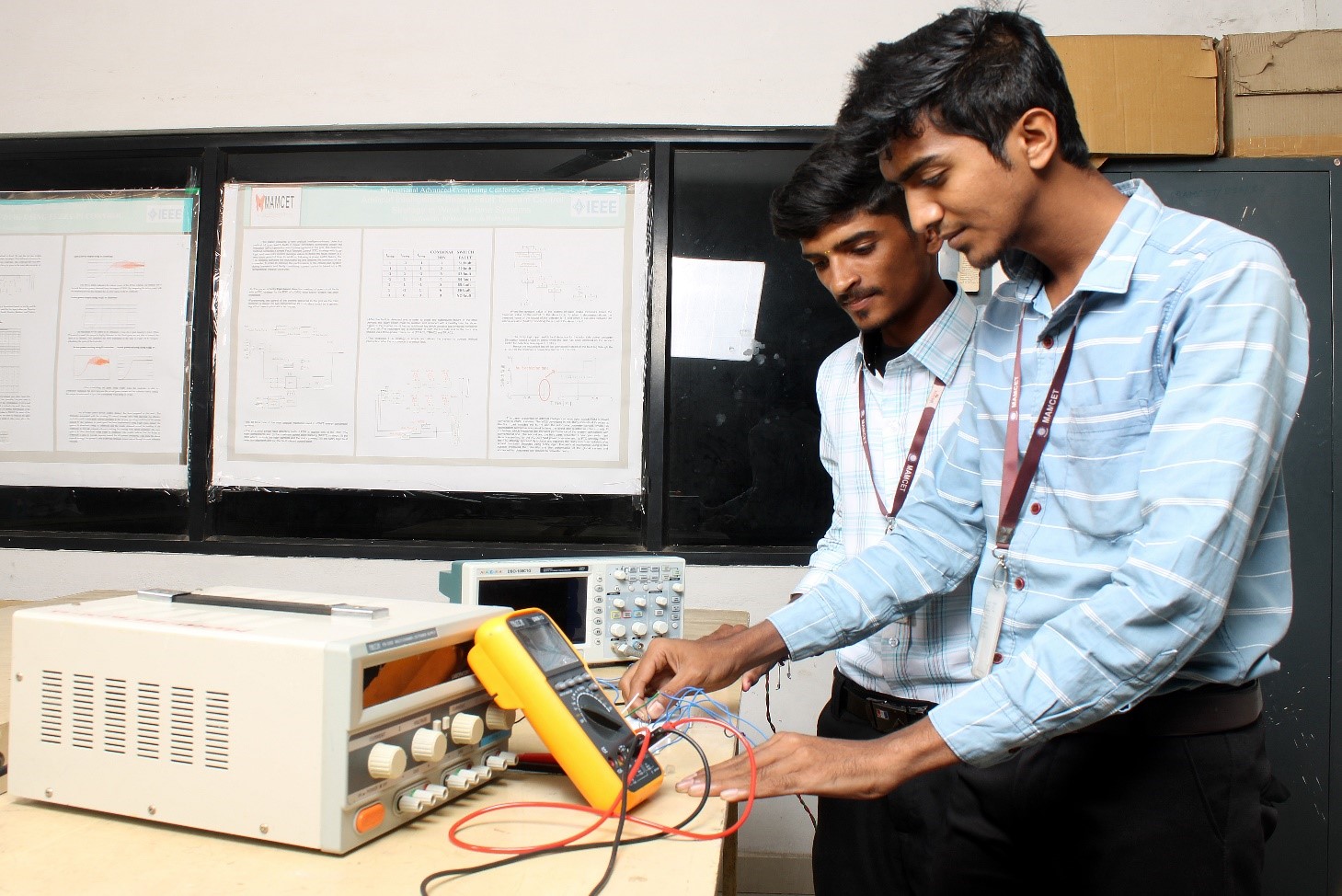
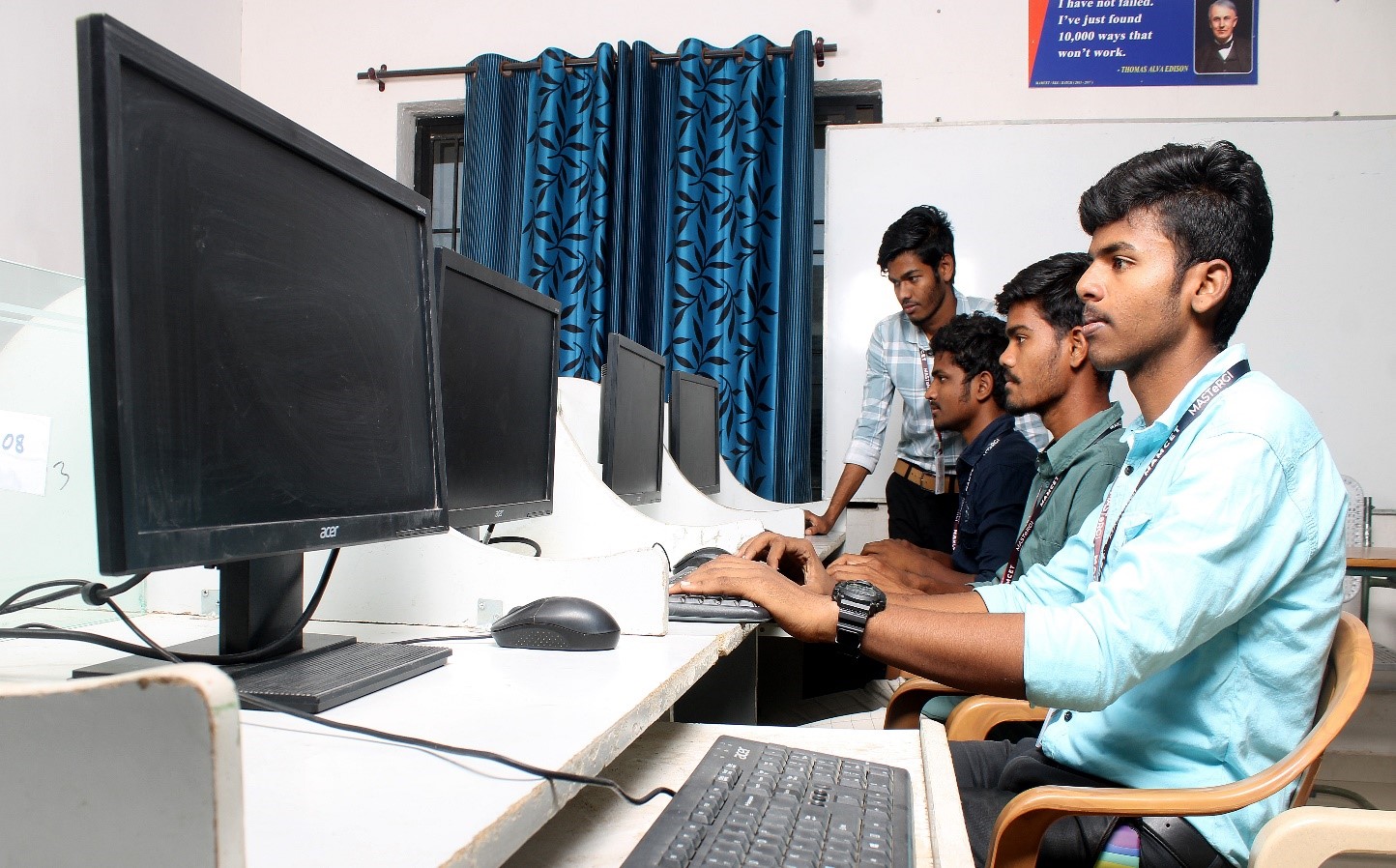
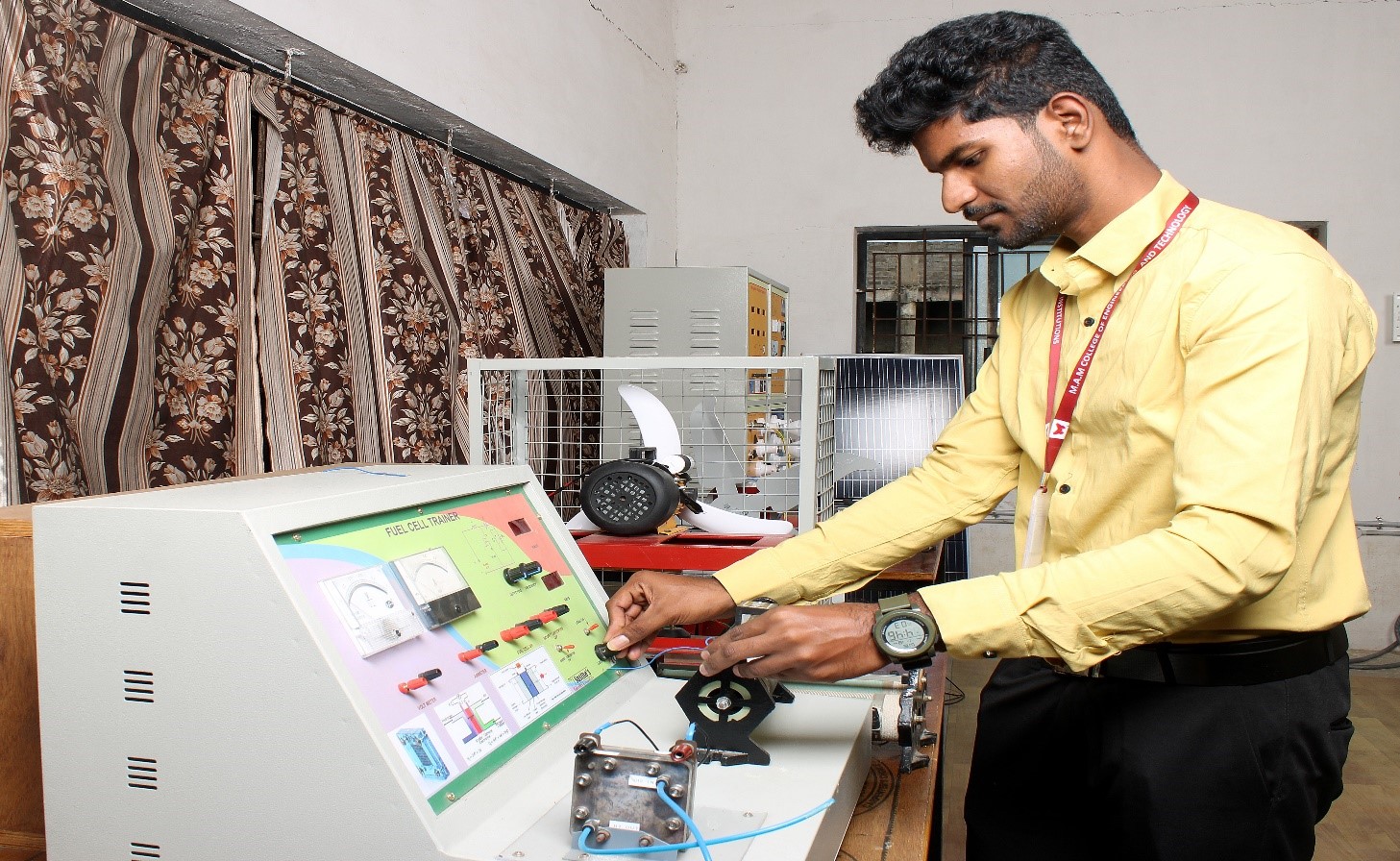
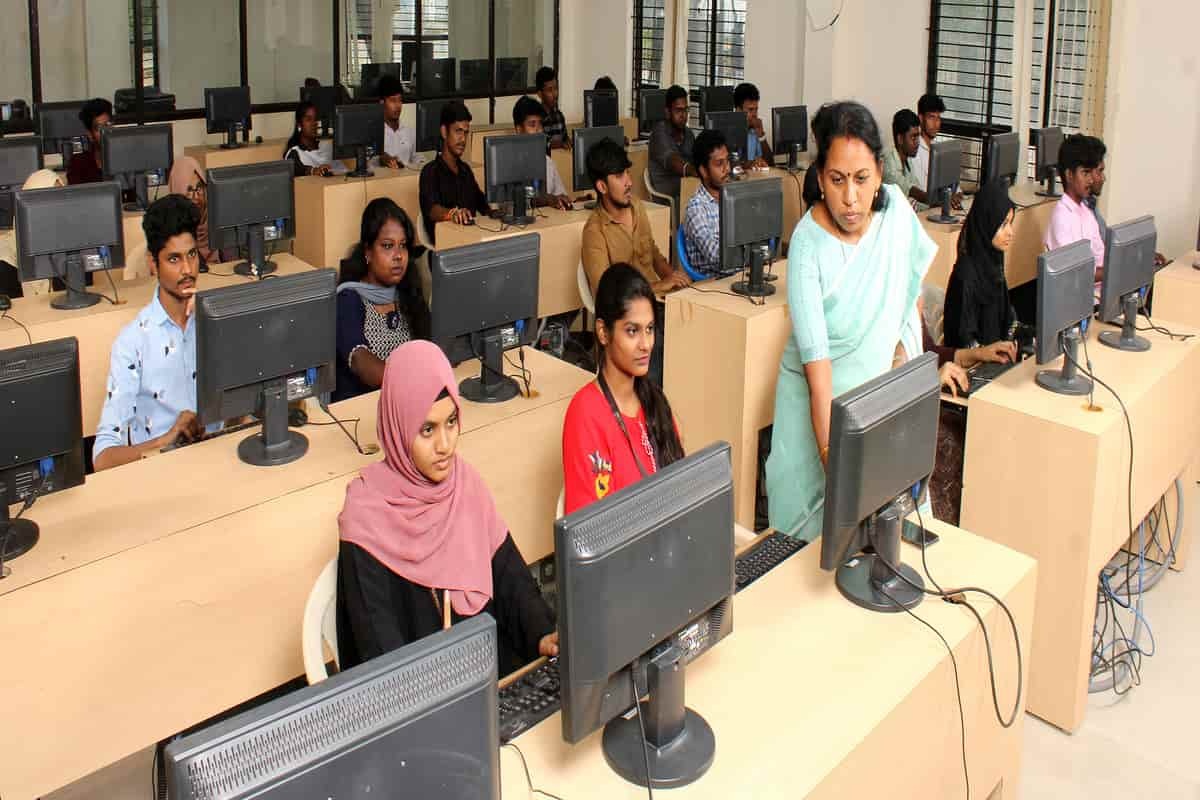
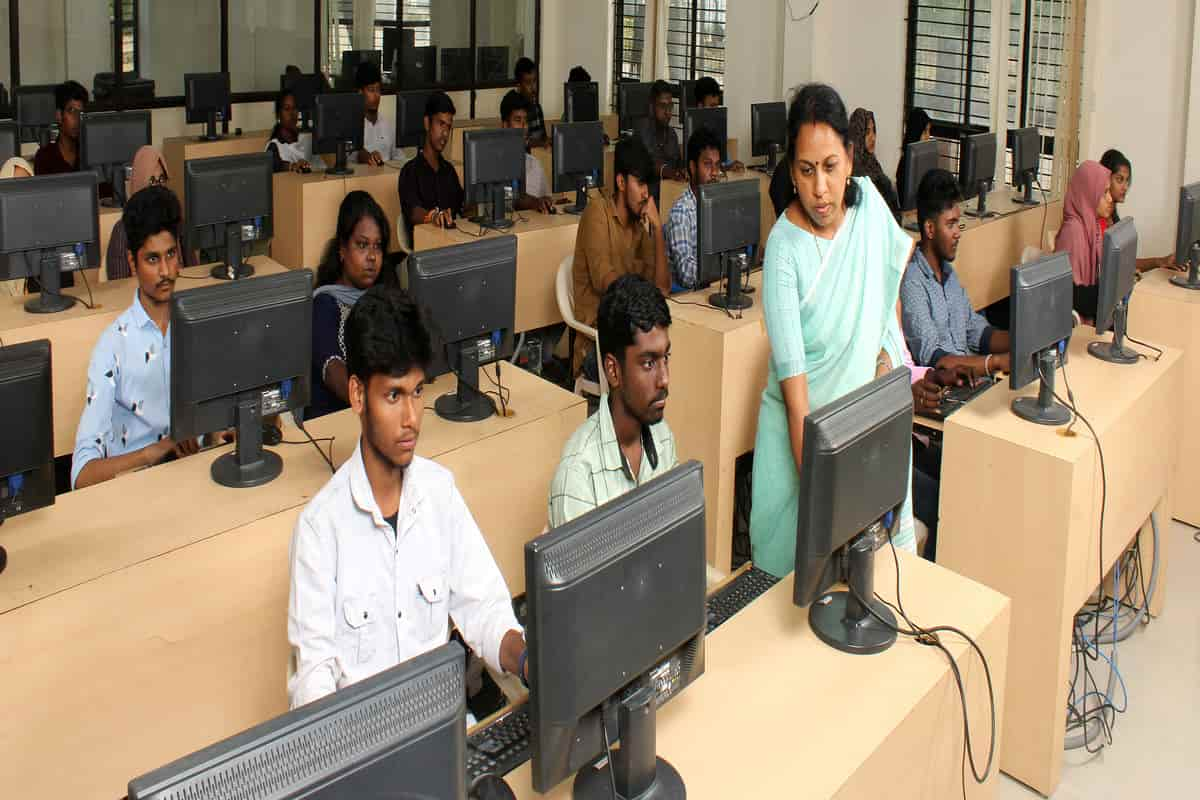
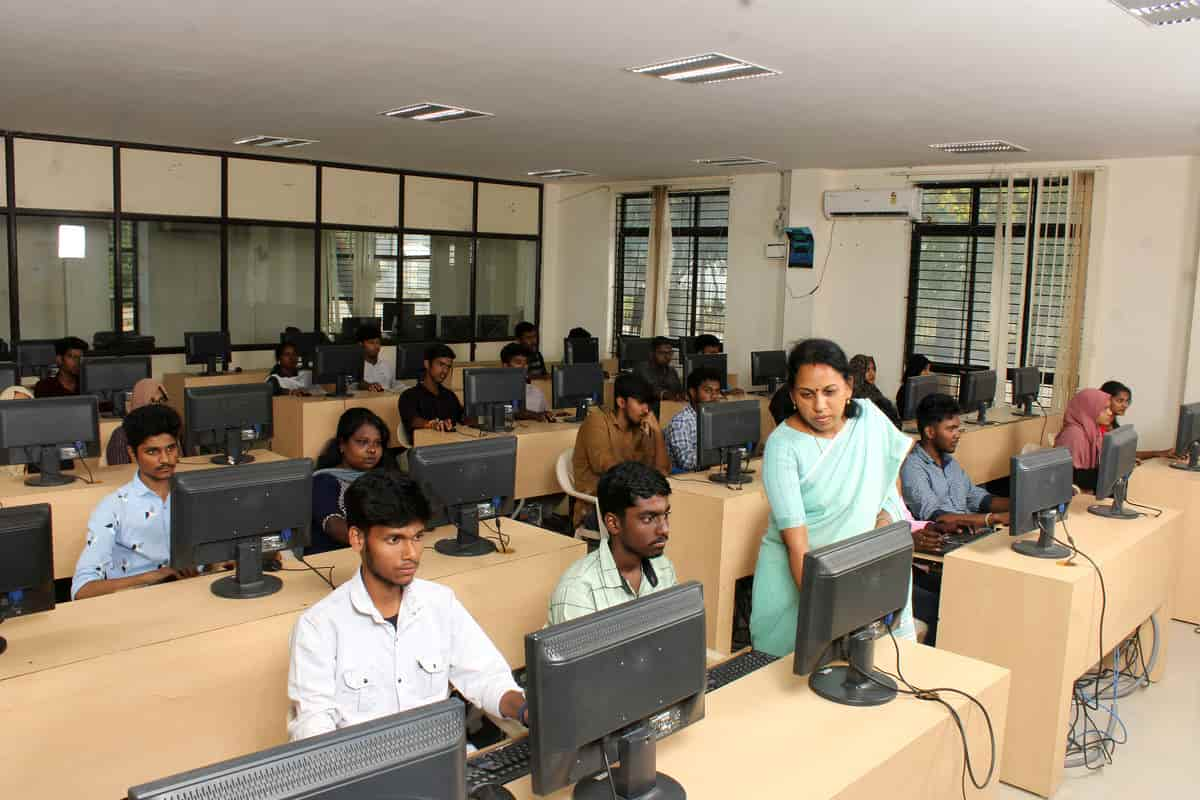
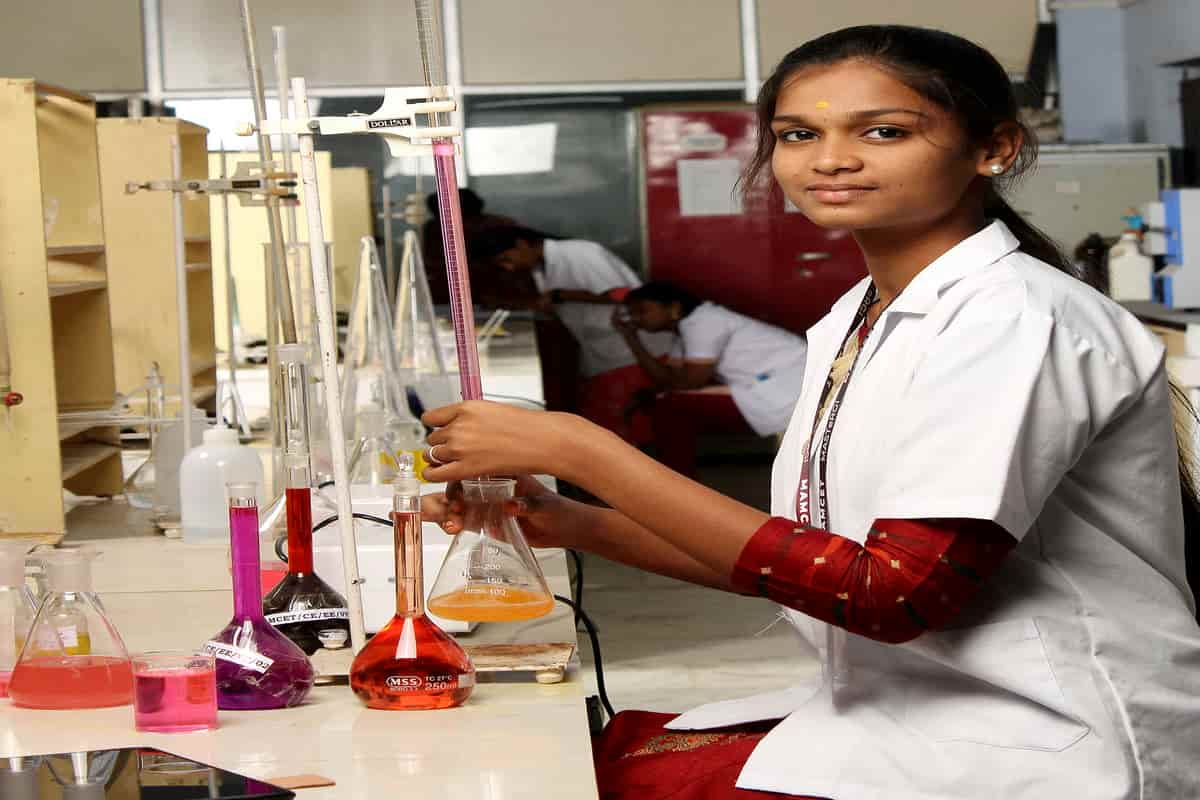
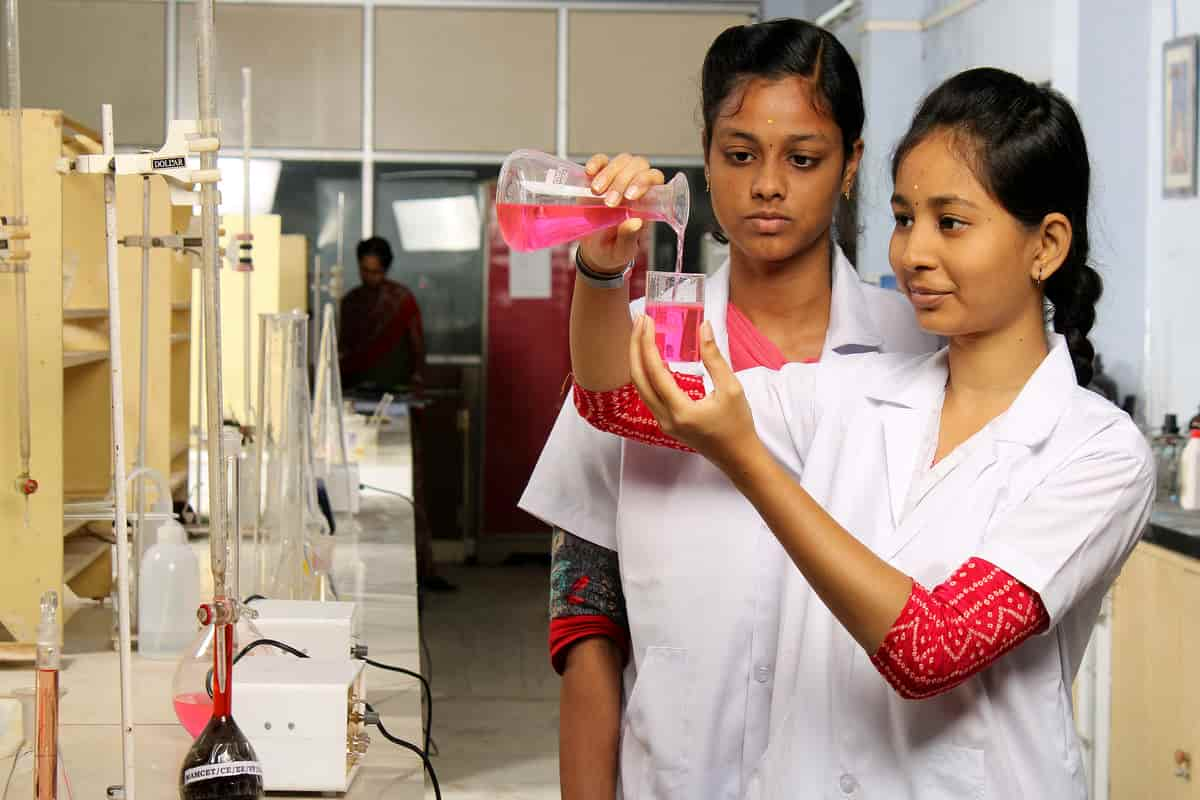
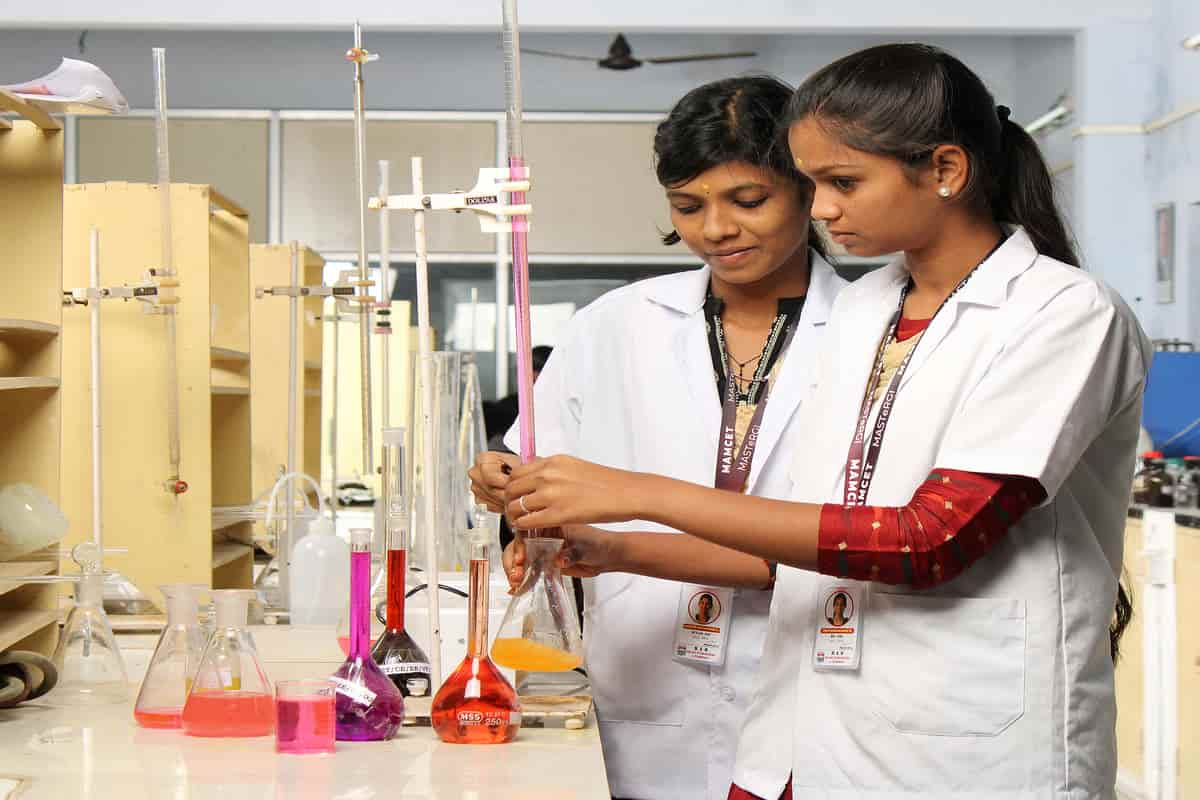
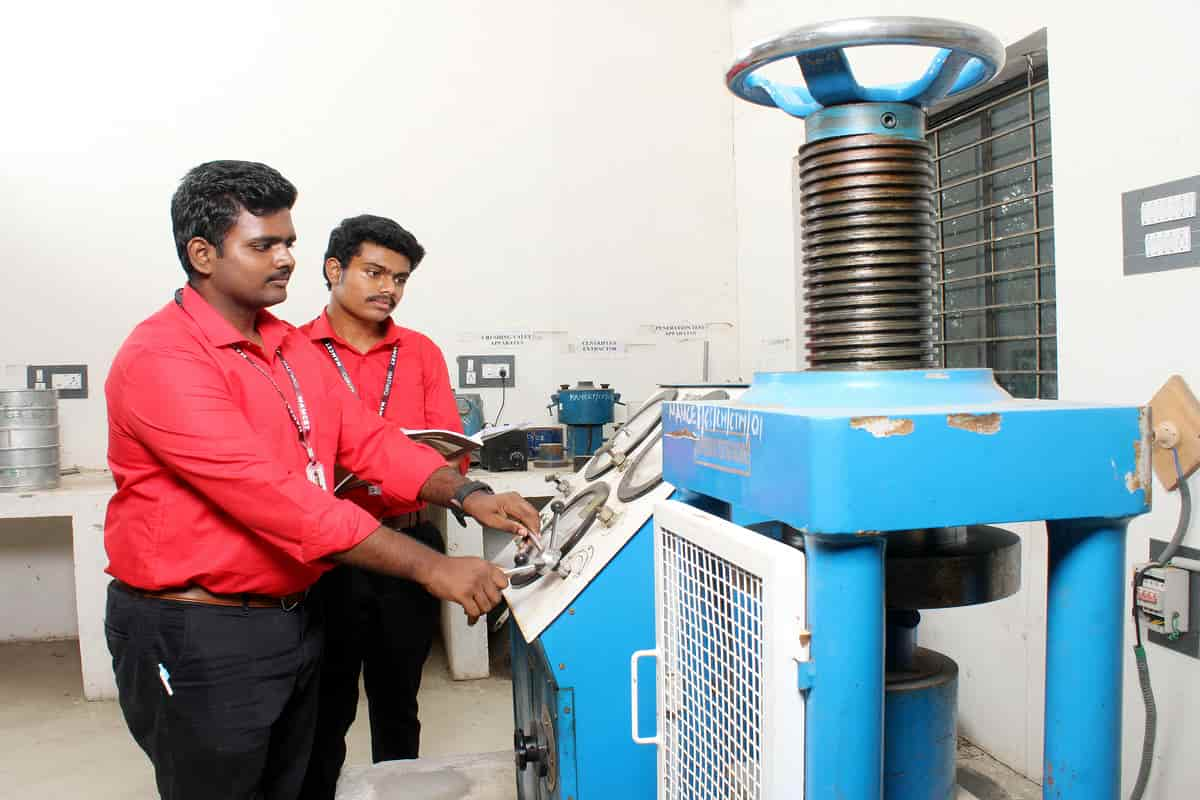
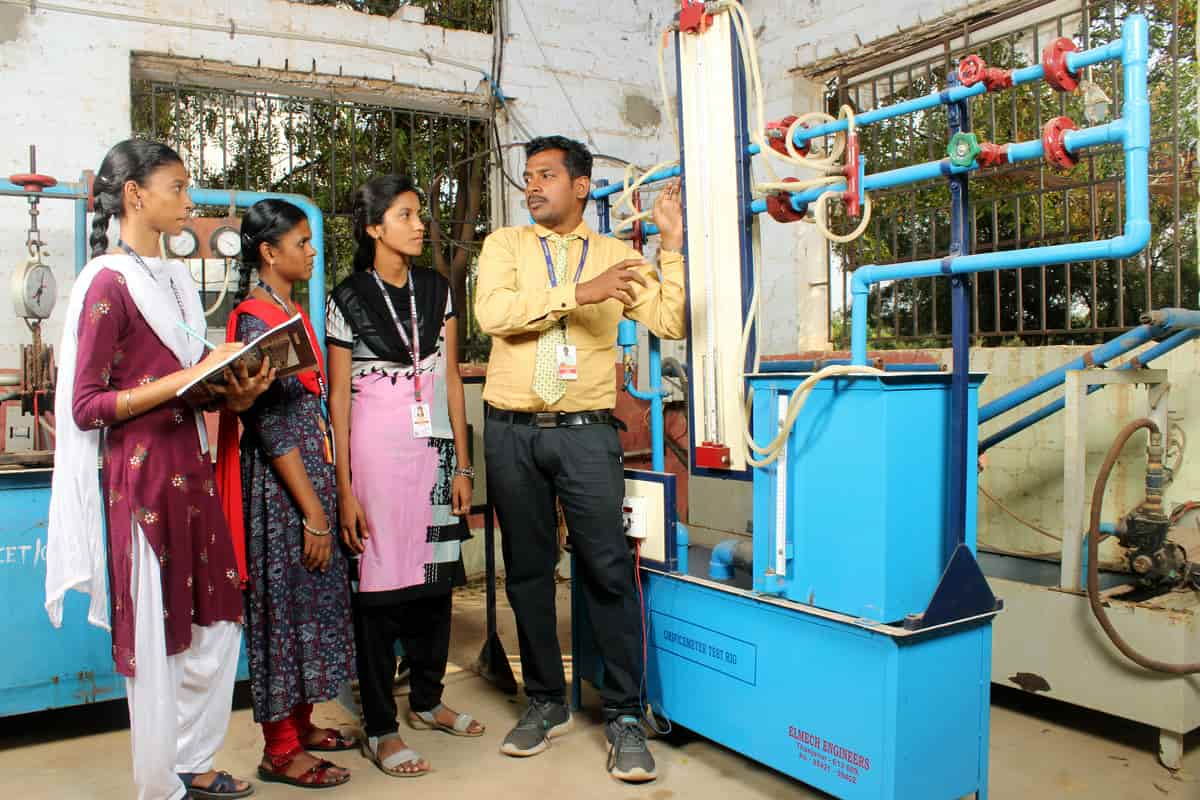
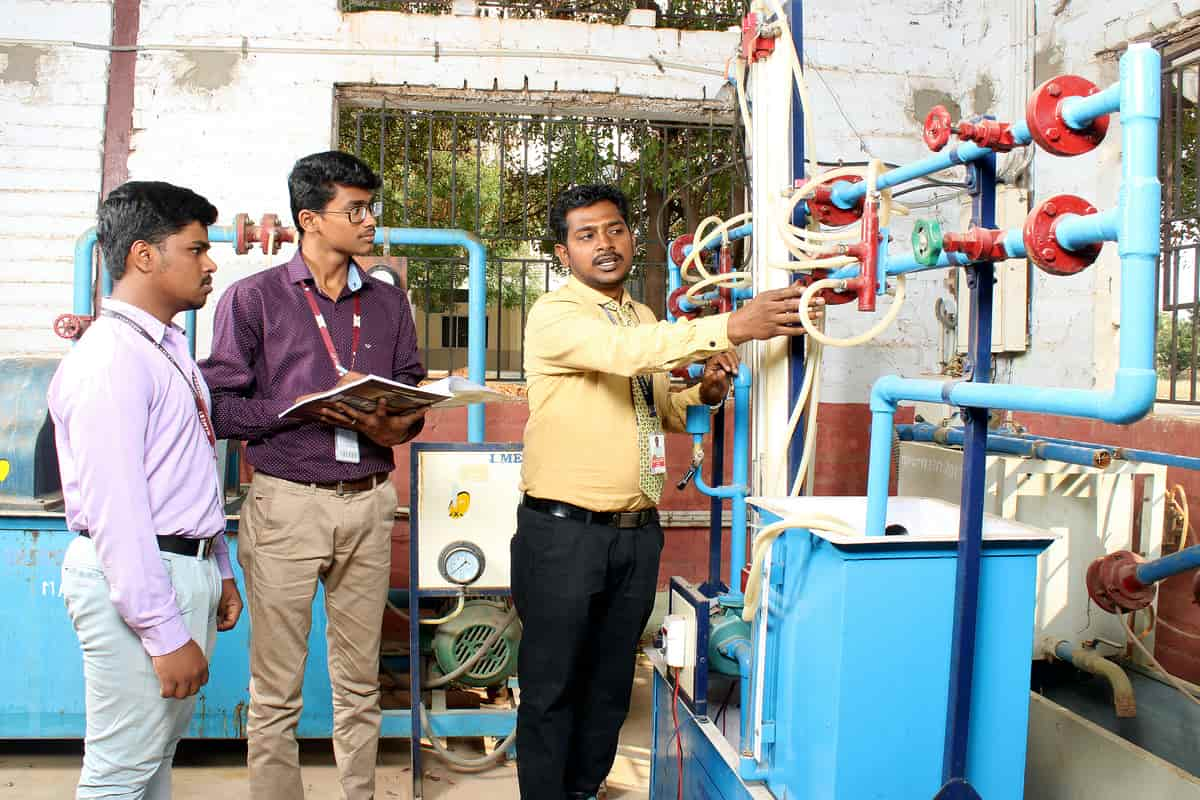
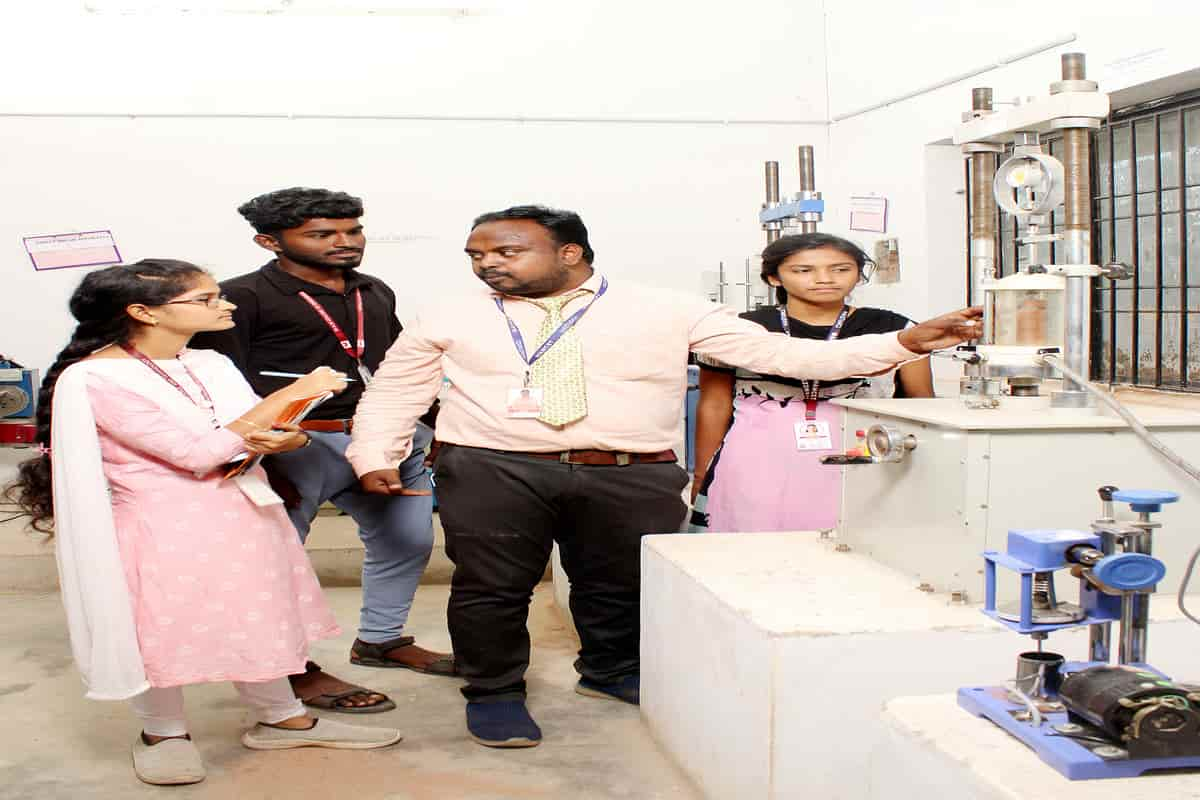
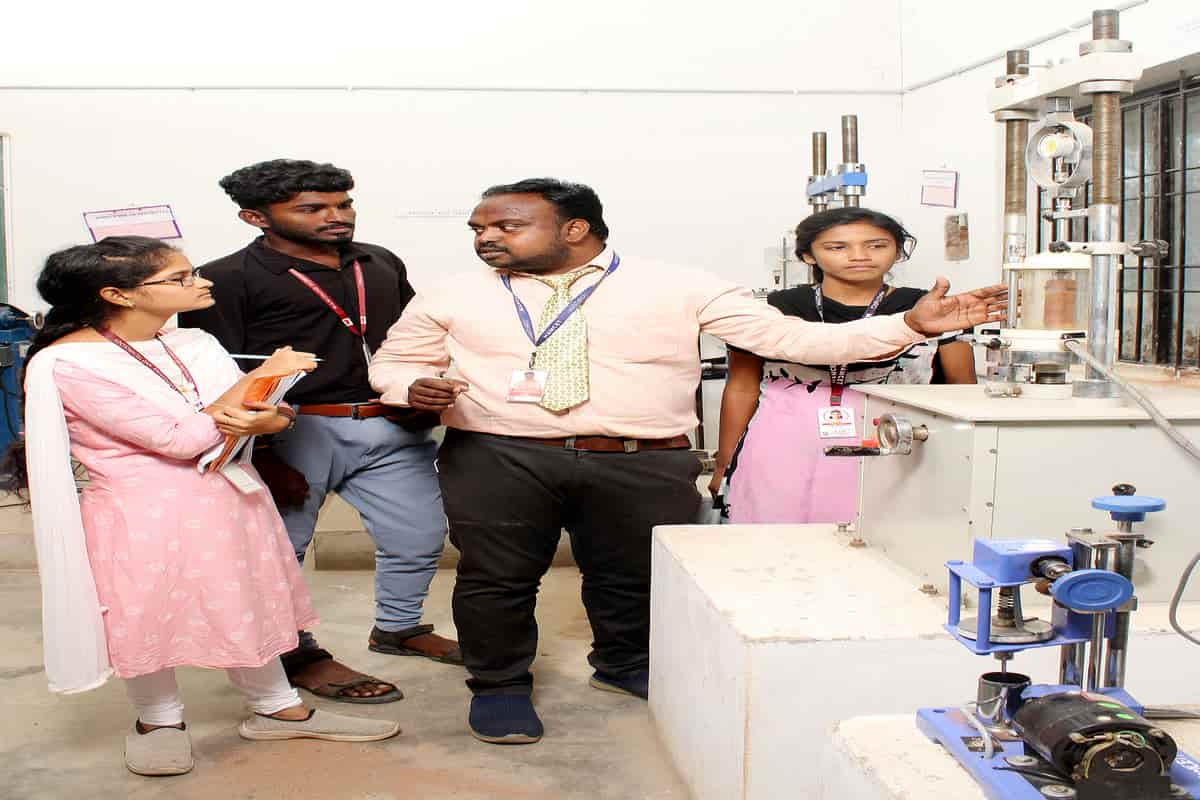
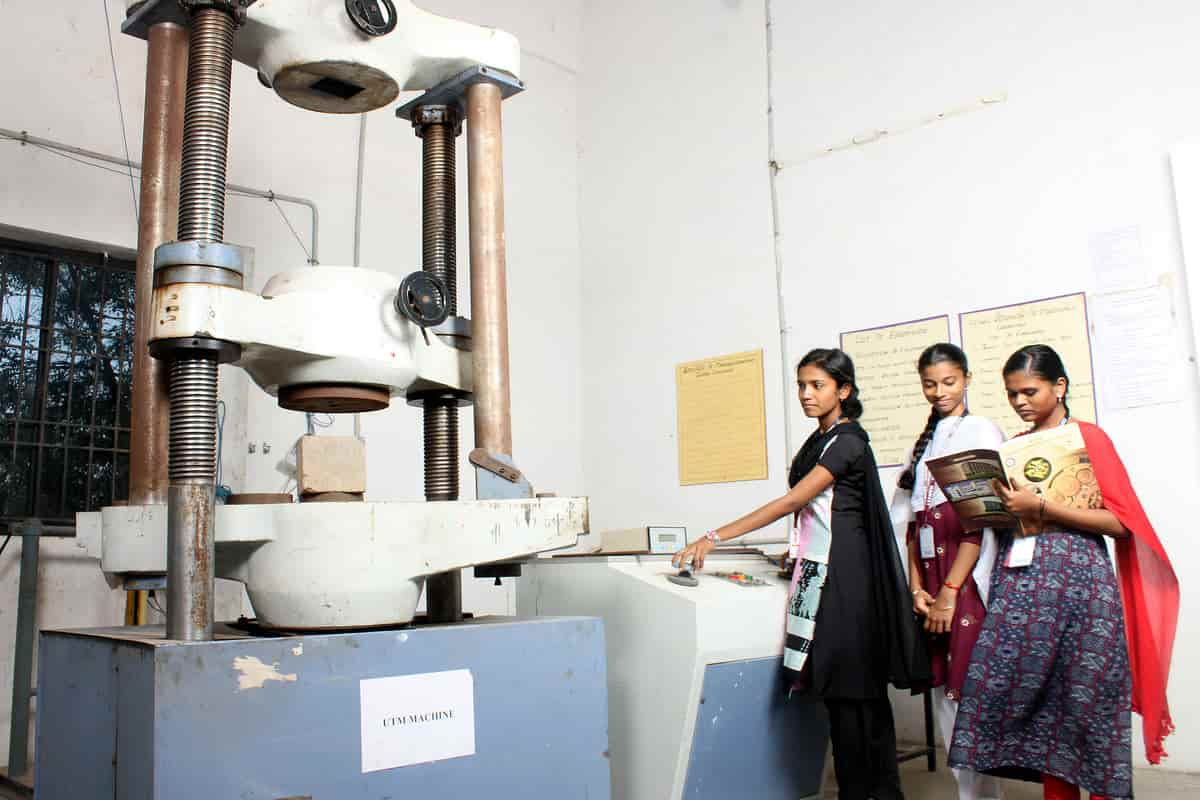
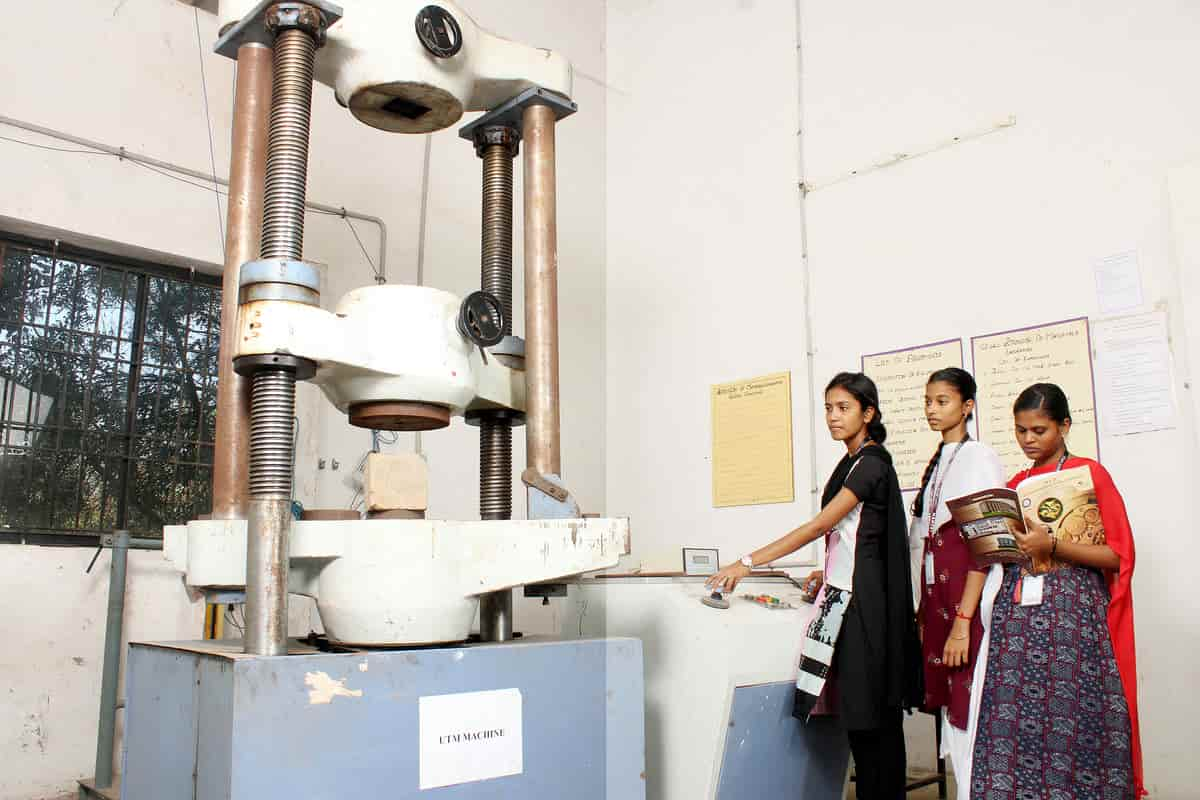
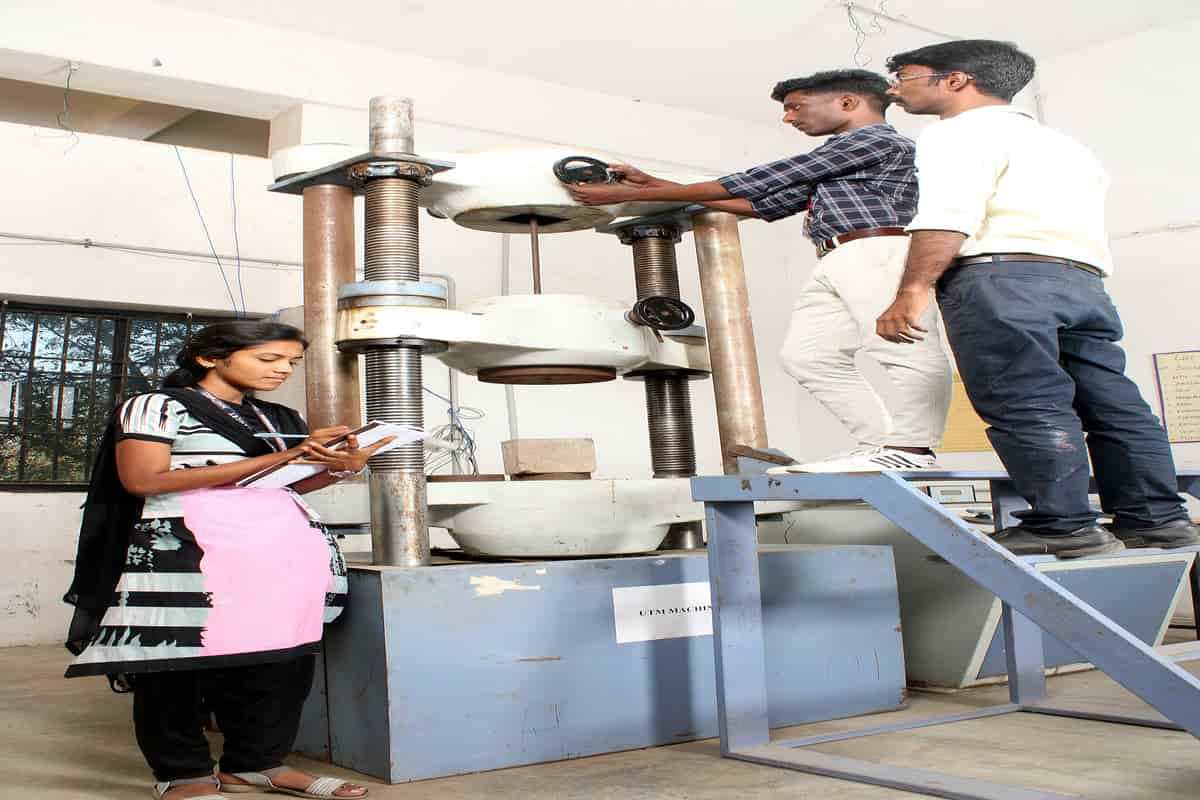
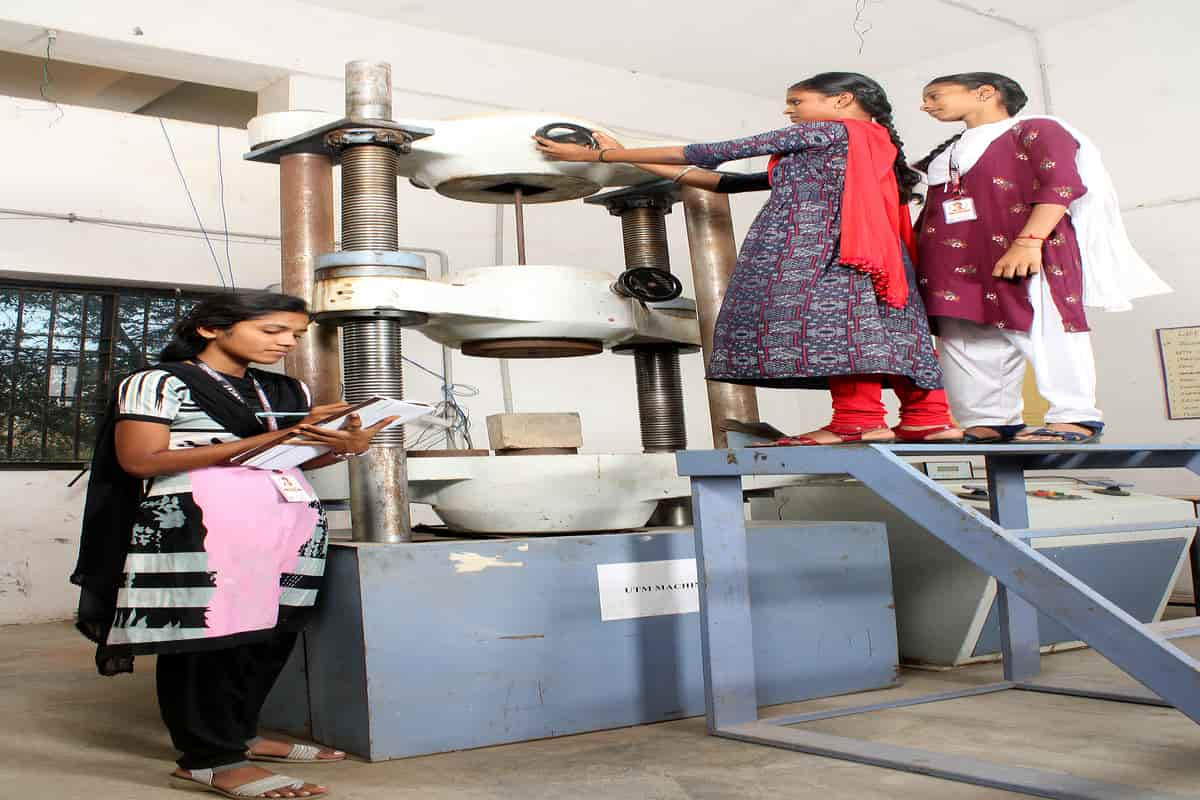
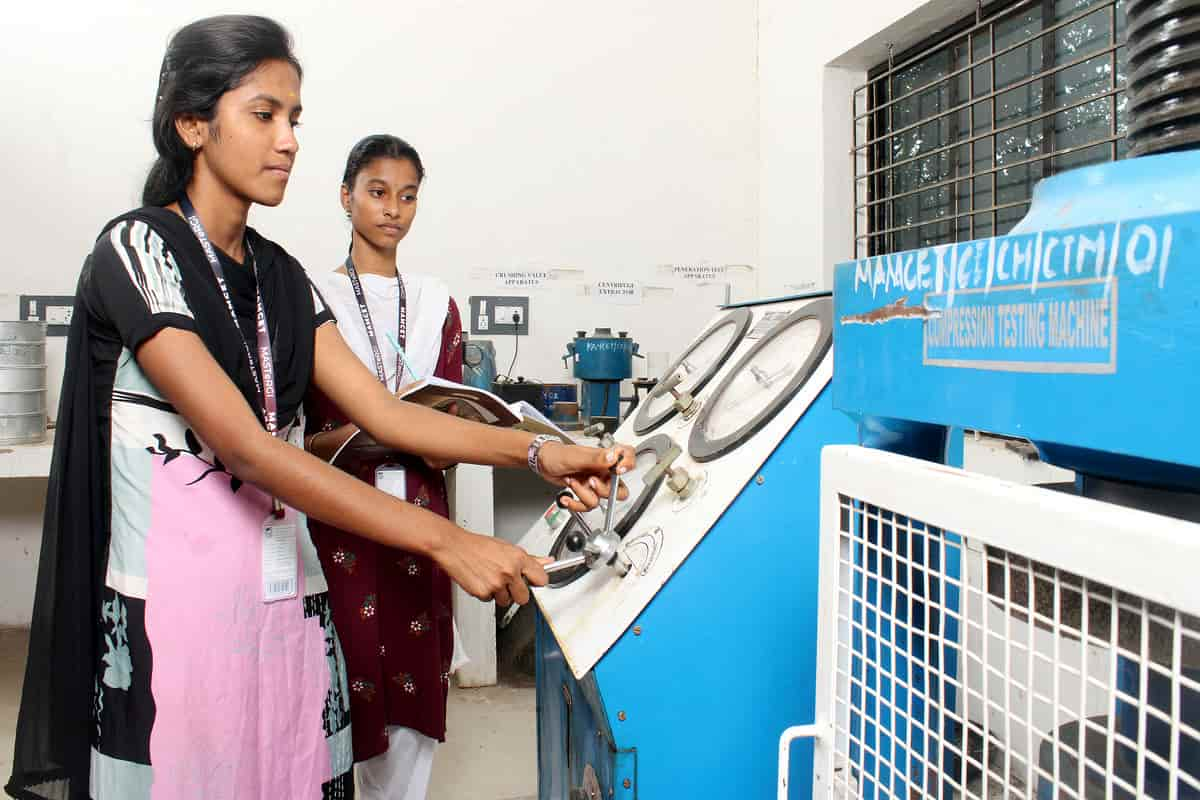
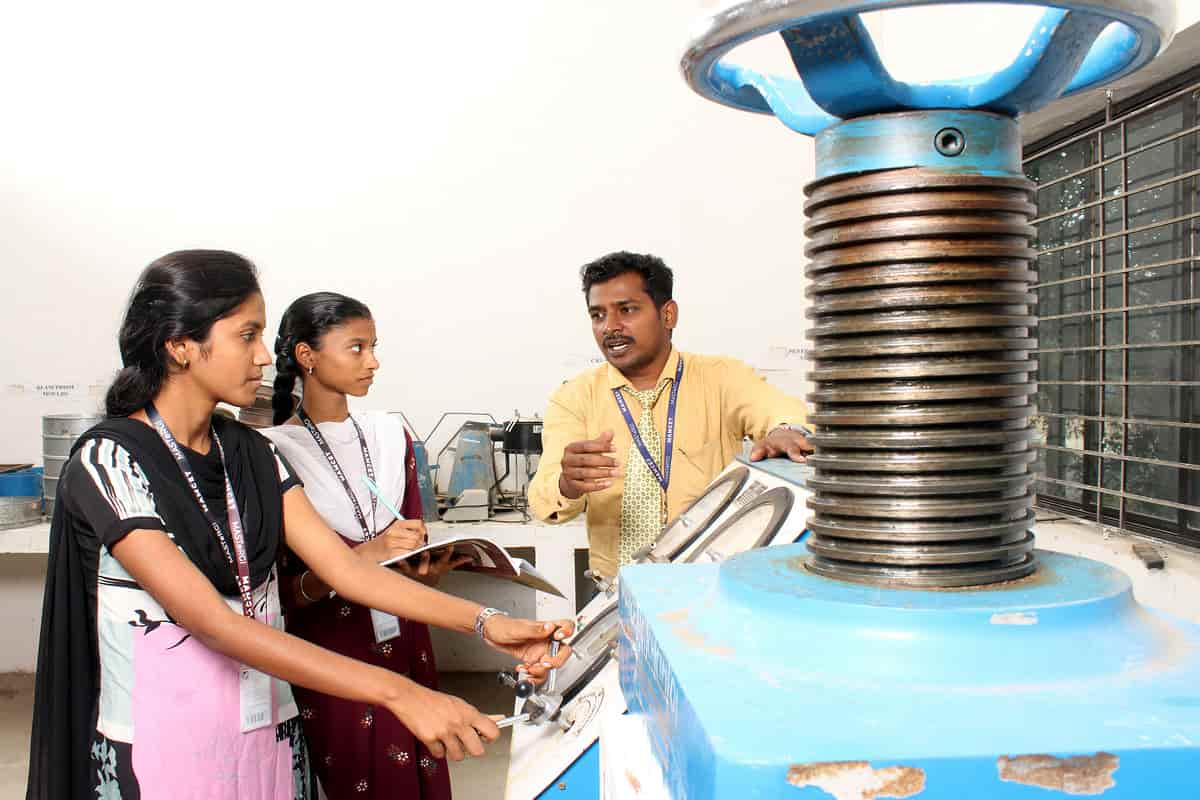
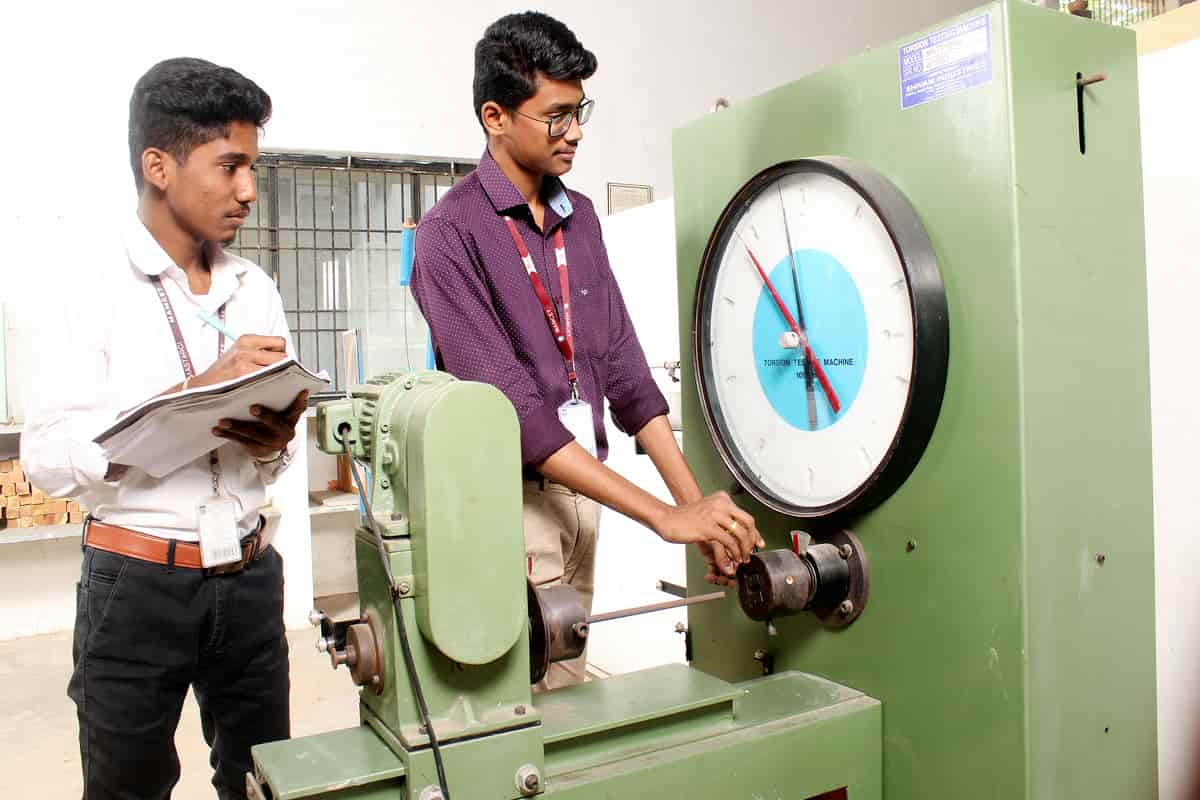
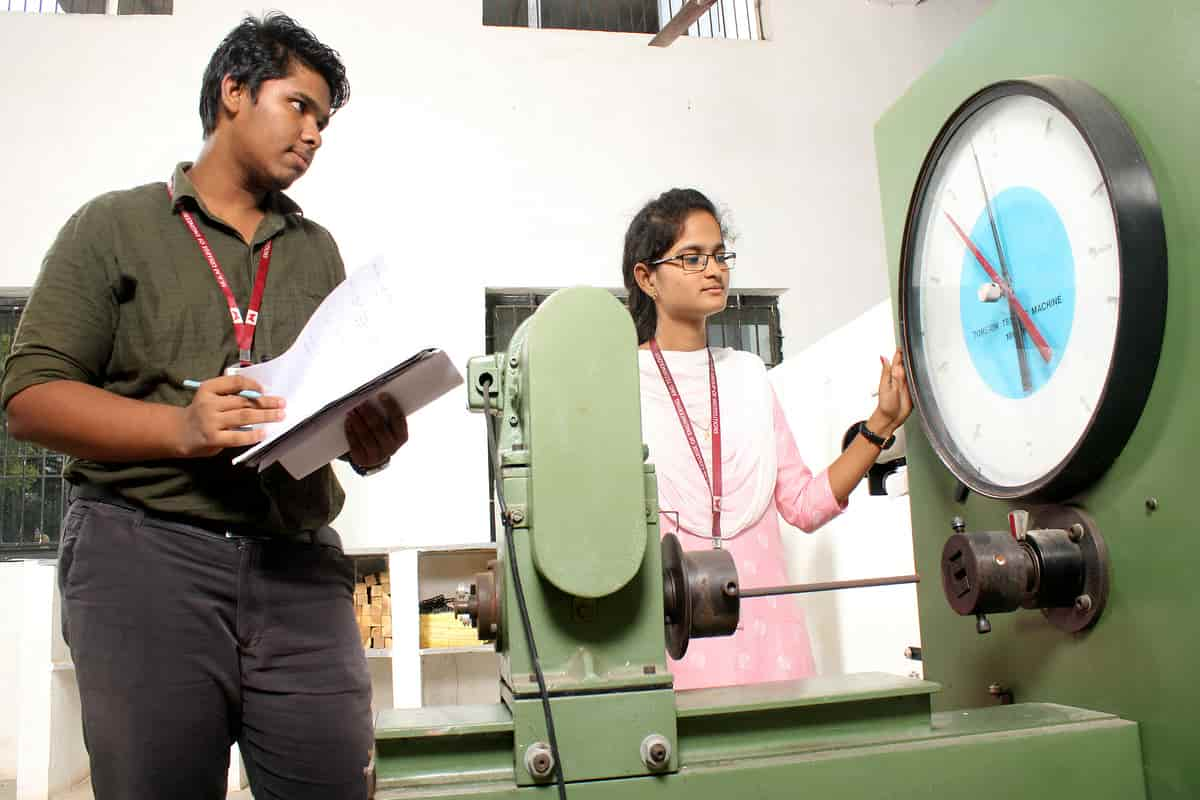
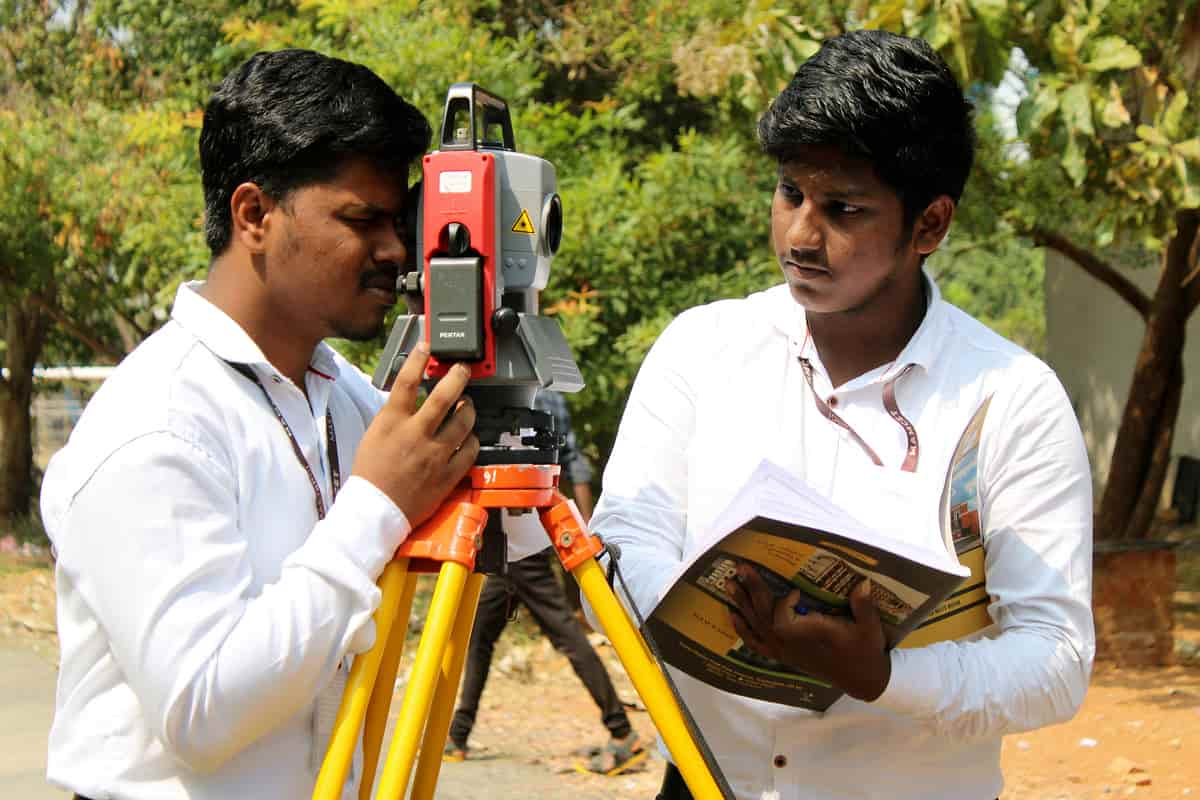
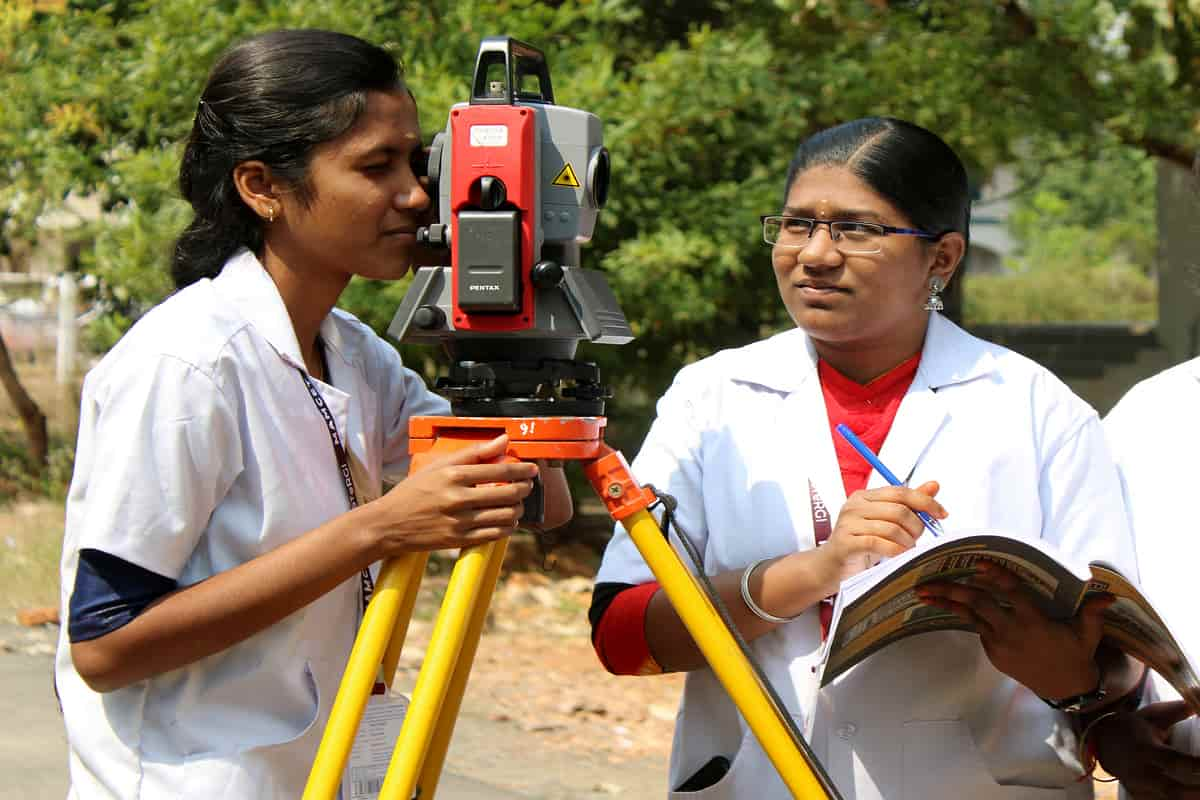
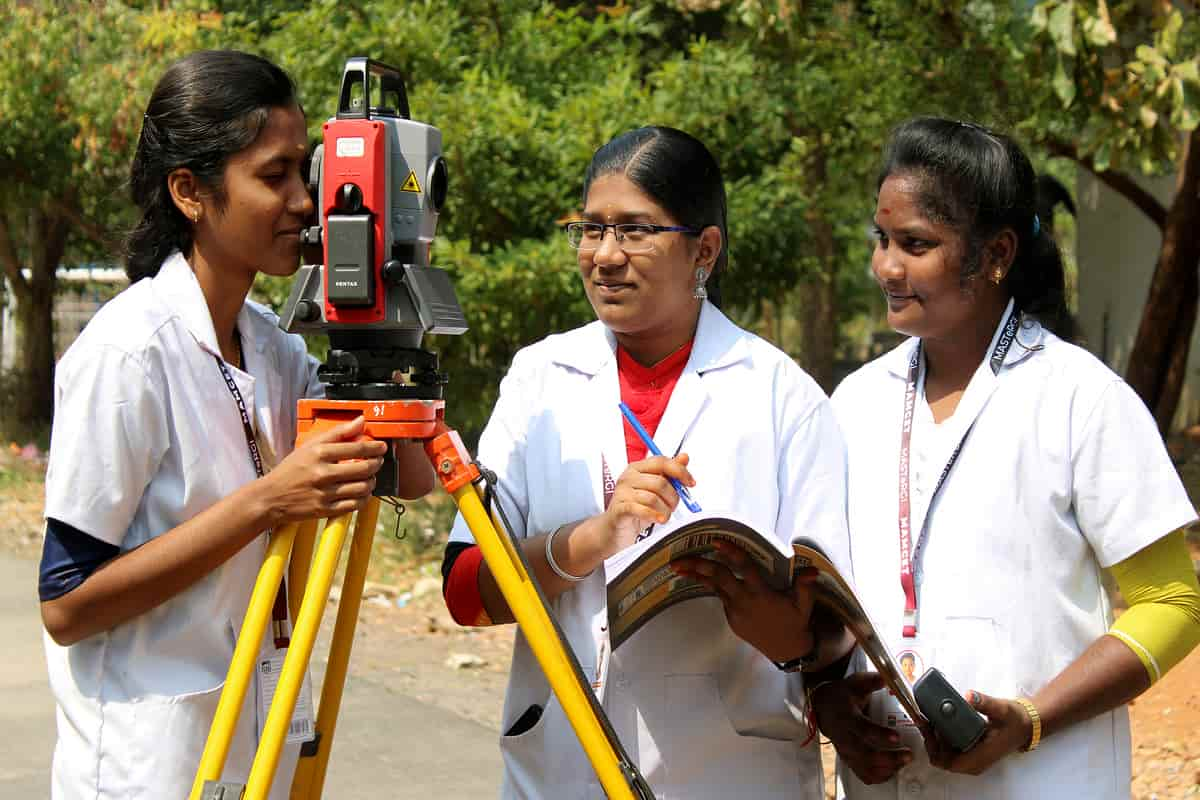
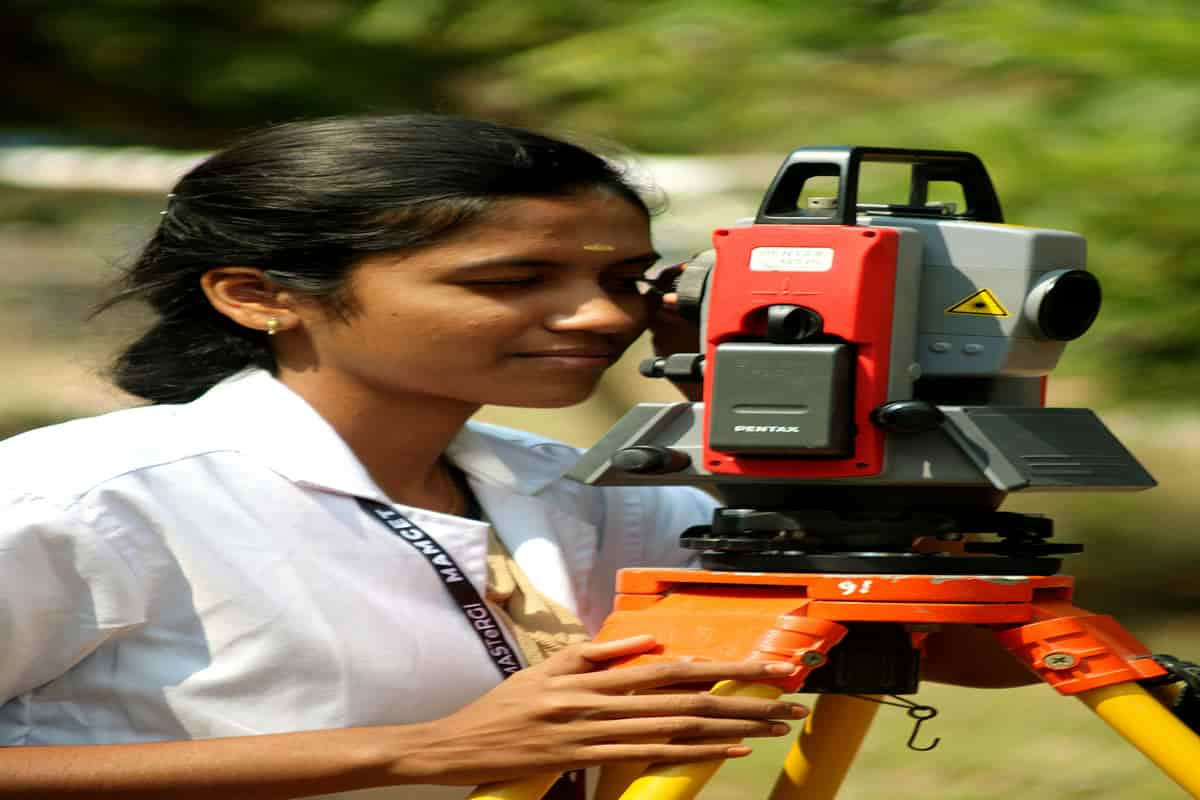
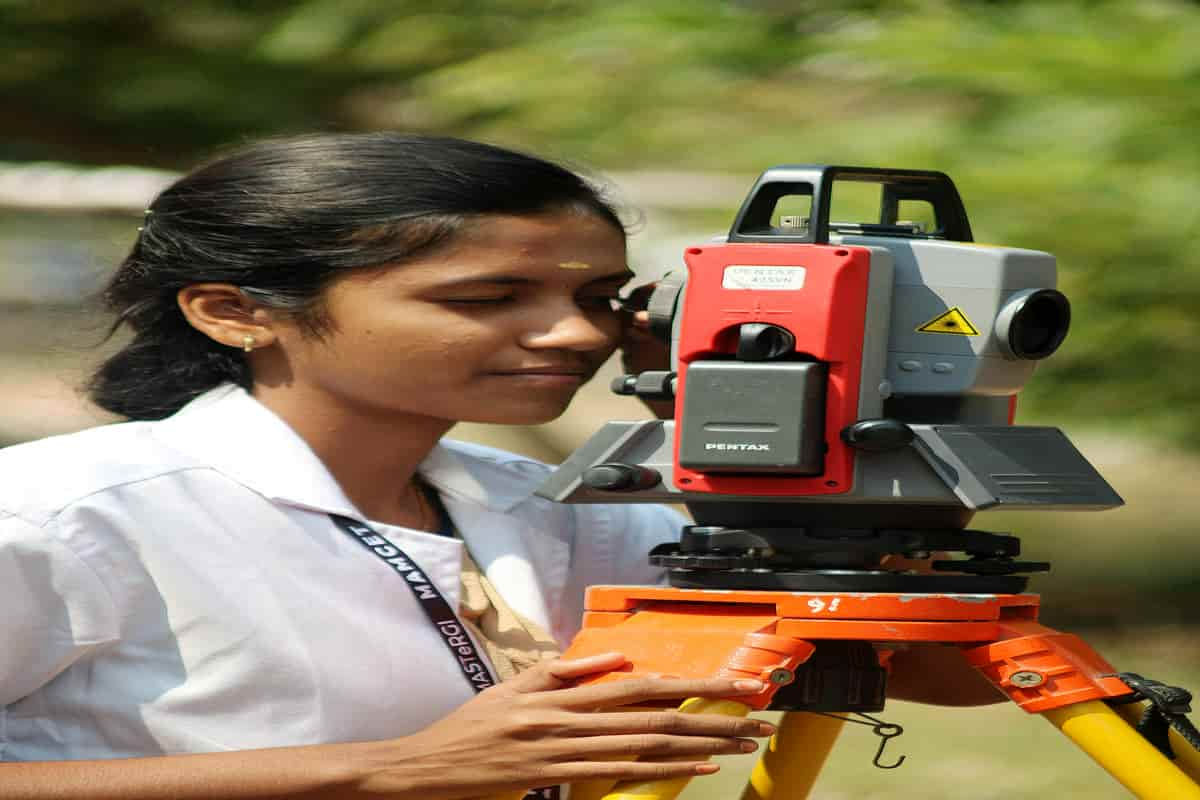
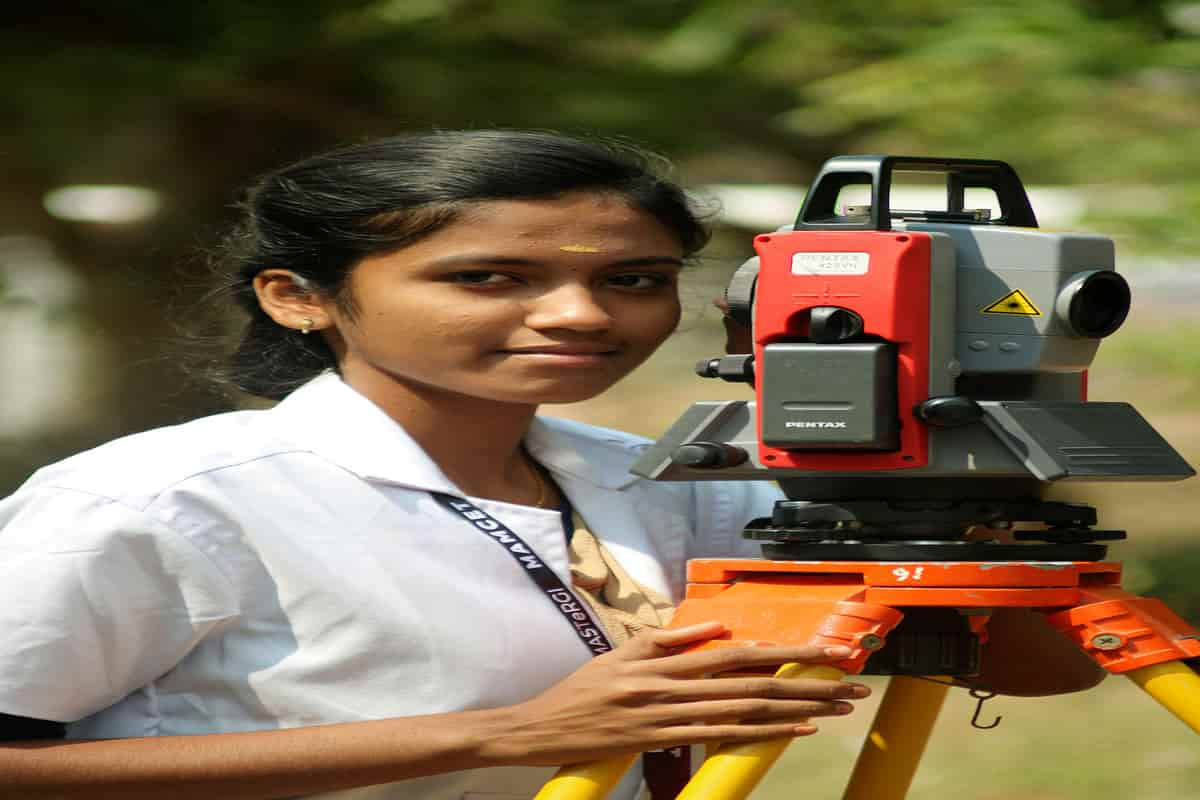
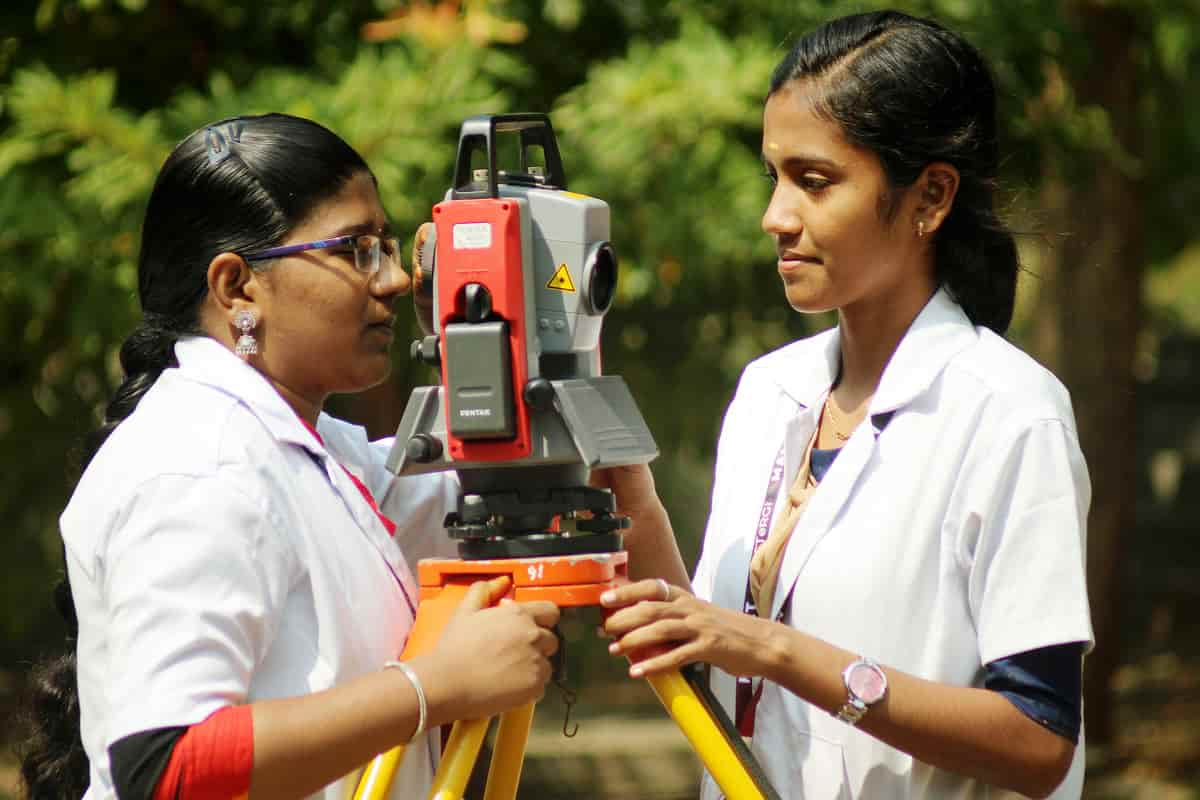
PLACEMENT DATA
| S.No | Name of the company | No. of Students Placed |
|---|---|---|
| 1 | V DART | 3 |
| 2 | Code King | 3 |
| 3 | Chola | 1 |
| Name of the Company | Number of Offers |
|---|---|
| Leviaan Solutions | 6 |
| Alass Infotech Solutions | 12 |
| V Dart | 4 |
| CRI Pumps | 4 |
| Coding King | 5 |
| Chola | 7 |
| Sight Spectrum Technology Solutions | 12 |
| PIE Infocomm Pvt. Ltd. | 9 |
| Sight Spectrum Technology Solutions | 8 |
Research
The R&D department is dedicated to nurturing a robust research culture by encouraging exploration in newly emerging and challenging areas within the IT industry. Our dedicated faculty members and enthusiastic students actively participate in projects that address real-world challenges, making meaningful contributions to society. This enhances the overall research capabilities of faculty and students through getting project funds, publishing papers, and participating in conferences, seminars, workshops, project competitions, etc
Objectives:
- To create awareness, opportunities, and a vibrant Research and Development atmosphere among faculty and students in the department.
Outcome:
- To generate innovative solutions
- To increase research activity resulting in publications in reputable journals and conferences
- To facilitate collaboration with industry partners, other academic institutions, and research organizations
- To obtain external funding through grants and sponsorships to support further research initiatives.
Student Project Involvement:
- To assist the students to apply funding for conducting research and startups under student project scheme to various funding agencies like TNSCST, MSME, IEI (I), DRDO, TCS, Infosys etc.
- To encourage development of activities to attract the best research oriented students.
Project Proposal using R&D Lab:
To depute senior faculty to various research organizations for getting collaborative projects and adopting best practices
- To assist for applying and getting funds for conducting Seminar/Workshop/FDP from various funding agencies
- To facilitate the growth of research activity among the academic community, including developing mechanisms and targets to achieve this.
Research Activity:
- To develop and coordinate strategies for maximizing the faculty’s success in gaining external research funding and faculty level workshops and staff development activities on research-related issues
- To maintain and disseminate current information about relevant research policy areas and initiatives in government, professions and relevant industries, including external funding opportunities
- To develop strategies to foster research collaborations within the faculty, across faculty and institutes, and with agencies outside the college
- To work with various departments to establish and develop faculty research priorities in interdisciplinary areas
- To create tenor among the staff members to take up Research projects and improve their knowledge, skills and qualifications by registering Ph. D‘s
- To encourage staff members and students to publish technical papers for publishing in National and reputed International Conferences/Journals
- To undertake research activities and development projects offered by agencies
- To assist for applying and getting funds for conducting Seminar/Workshop/FDP from various available funding agencies
| CAY m1 (2022-2023) | ||||
|---|---|---|---|---|
| S.No | Project Title | Duration | Funding Agency | Funding Amount |
| 1 | Comprehensive Power Quality Analysis and Energy conservation | 3 months | Kun Capital Automotive Pvt Ltd,Ariyamangalam,Trichy. | 1,00,000 |
| 2 | Measurement of Electrical Parameters and Implementing Energy – saving measures | 3 months | Veda dairy Pvt ,Ltd,Musiri,Trichy | 1,00,000 |
| CAYm2 (2021-2022) | ||||
| S.No | Project Title | Duration | Funding Agency | Funding Amount |
| 1 | Converting relay contactor logic to PLC in Tow can unit operation. | 4 months | Shree Renga ,Polymers, Unit- 1, Puliyur, Karur. Unit – 2,kakkavadi, Karur | 1,60,000 |
| CAYm3 ( 2020-2021) | ||||
| S.No | Project Title | Duration | Funding Agency | Funding Amount |
| 1 | Electrical Equipment Power Quality analysis for equipment predictive maintenance and energy saving | 2 months | Velmurugan Industries, Trichy | 40,000 |
| S.No | Name of the Authors | Title of the Paper | Name of the Journal | Index | DOI Number |
|---|---|---|---|---|---|
| 1 | Mrs .A.MaryBeula, Mrs S.Rakkammal. | Solar Wireless Electric Vehicle Charging System | European Chemical Bulletin | Scopus | https://www.eurchembull.com/uploads/paper/467e082fc408d59f6dc4ed1632316027. |
| 2 | Dr.S.Rajasekaran | Assessment Of PQ Issues Using Dynamic Voltage Restorer With Adaptive Filter | Japan Society of Mechanical Engineers Journal of Biomechanical Science and Engineering | Scopus | DOI 101.17605/OSF.IO/Q3ZG ISSN:1880-9863 |
| 3 | Mrs.S.Rakkammal | IOT Based Dual Battery Monitoring and Charging System for Electric Vehicle Applications | International Journal of Advanced Trends in Engineering and Technology | UGC | https://doi.org/10.5281/zenodo.7823546 |
| 4 | Mr.N. Mayavel | IOT Based Solar Charging Station for E-Vehicle | International Journal of Scientific Research and Modern Education | UGC | https://doi.org/10.5281/zenodo.7906795 |
| 5 | Mr.R.Surendar | MD Integrated ILMS Control Using Programmable Logic Controller | International Journal of Computational Research and Development, | UGC | https://doi.org/10.5281/zenodo.7857189 |
| 6 | Mr .M.Vinoth Kumar | Iot Based Reverse Vending Machine For Recycling Station | International Journal of Current Research and Modern Education, | UGC | https://doi.org/10.5281/zenodo.7934114 |
| 7 | Mrs .A. Mary Beula | Wireless Power Charging And Hybrid Power Generation For Electric Vehicle | International Journal of Engineering Research and Modern Education (IJERME) | UGC | https://doi.org/10.5281/zenodo.7833857 |
| 8 | Mrs .L.Glarida Amala | A Solar Tree Based Energy Harvesting, Tracking And Fault Detection System | Indo American Journal of Multidisciplinary Research and Review | UGC | http://iajmrr.com/article-issues/?cid=39 |
| 9 | Ms .A. Abirami, | Solar Based E-Uniform for Soldiers | International Journal of Advanced Trends in Engineering and Technology, | UGC | https://doi.org/10.5281/zenodo.7896772 |
| S.No | Name of the Authors | Title of the Paper | Name of the Journal | Index | D DOI Number |
|---|---|---|---|---|---|
| 1 | Mr.M.Vinothkumar, Mr.N .Mayavel, Mr.R.Surendar | Soft switched DC-DC converter for hybrid power generation photovoltaic panels using fuzzy logic controller | Materials Today: Proceedings – Elesvier- | Scopus | https://doi.org/10.1016/j.matpr.2022.05.146 |
| 2 | Dr.Rajasekaran S DrMuruganandam B Mrs.Rakkammal S Mrs.Mary Beula Mr.N. Mayavel Mr. R.Surendar | Automatic Ration Material Distribution System | Mathematical Statistician and Engineering Applications. | Scopus | Page Number: 13084-13092 Publication Issue:Vol.71 No.4(2022) |
Events
-
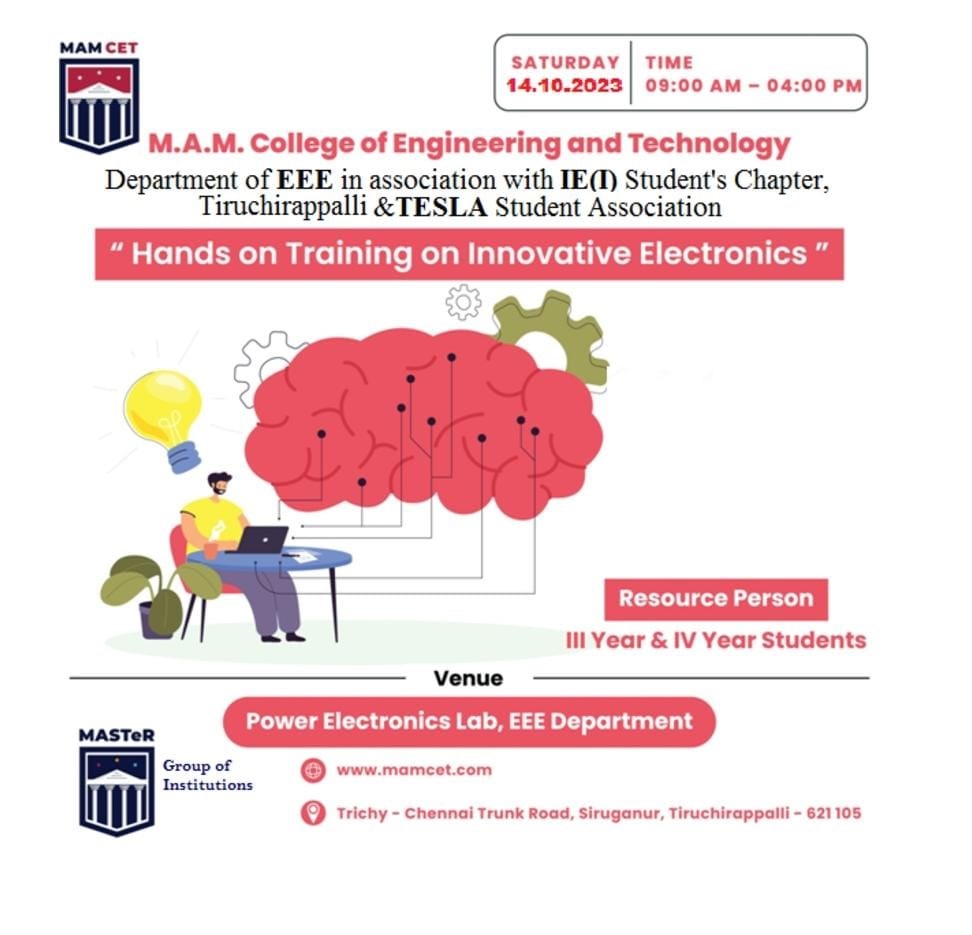
Hands on Training on Innovative Electronics
14/10/2023Date: 14-10-2023
Resource person: III & IV Year
Beneficiary: II Year14/10/2023Hands on Training on Innovative Electronics
Date: 14-10-2023 Resource person: III & IV Year Beneficiary: II Year
-
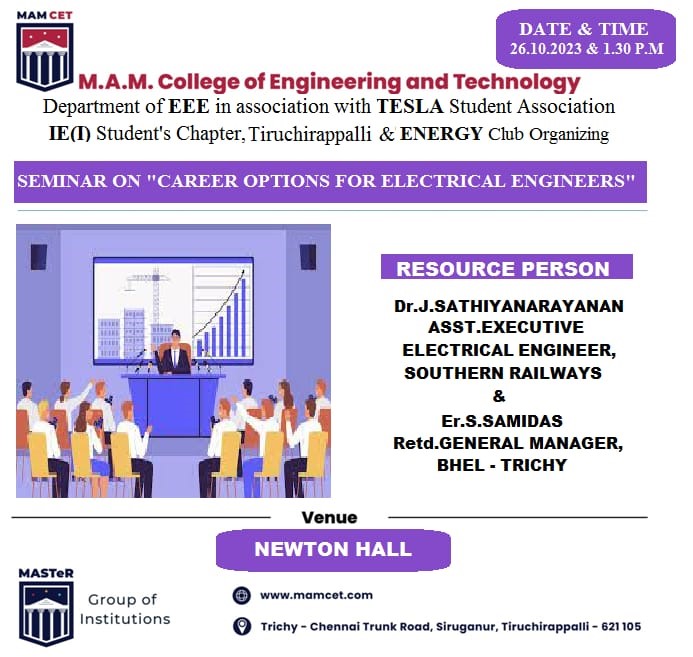
Seminar on Career options for Electrical Engineers
26/10/2023Resource person: Dr.J.Sathiyanarayanan, Asst.Executive Electrical Engineer, Southern Railways & Er.S.Samidas Retd. General Manager, BHEL-Trichy Beneficiary: II,III&IV Year
26/10/2023Seminar on Career options for Electrical Engineers
Resource person: Dr.J.Sathiyanarayanan, Asst.Executive Electrical Engineer, Southern Railways & Er.S.Samidas Retd. General Manager, BHEL-Trichy Beneficiary: II,III&IV Year
-
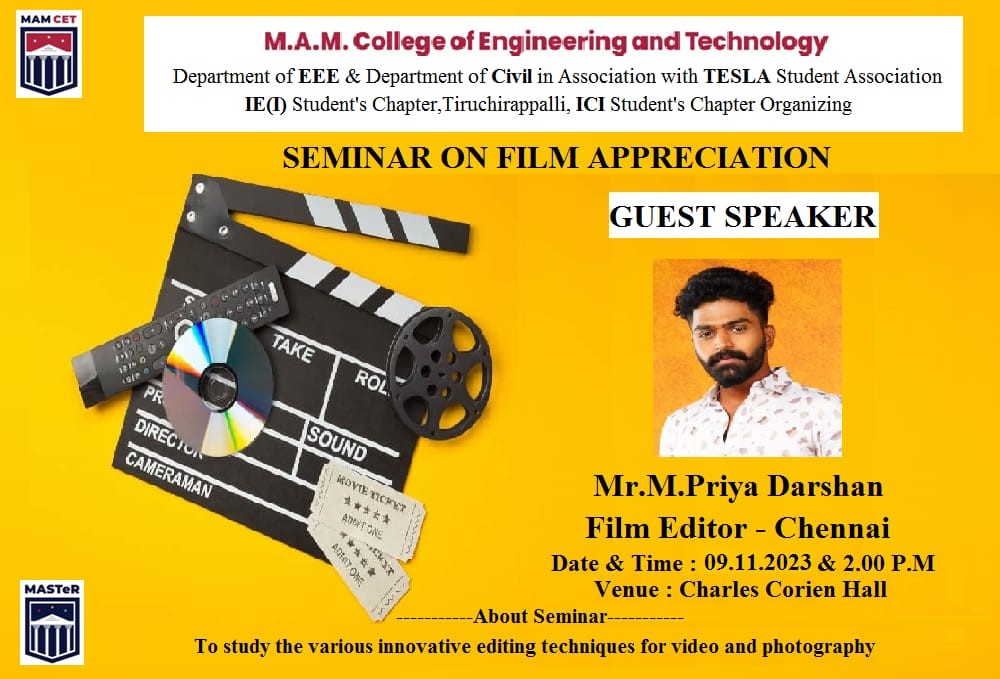
Seminar on Film Appreciation
09/11/2023Date: 09-11-2023
Resource person: Mr.M.Priya Darshan Film Editor – Chennai
Beneficiary: II,III&IV Year09/11/2023Seminar on Film Appreciation
Date: 09-11-2023 Resource person: Mr.M.Priya Darshan Film Editor – Chennai Beneficiary: II,III&IV Year
-
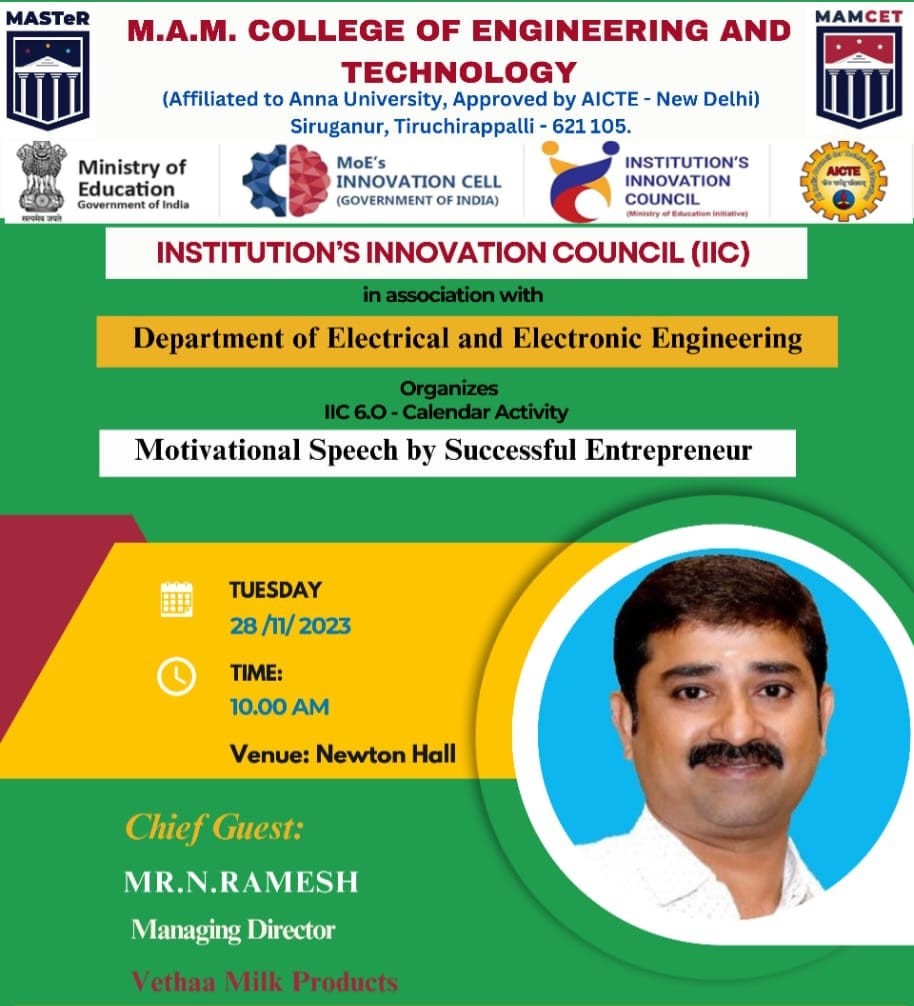
Motivational Speech by Successful Entrepreneur
28/11/2023Date: 28-11-2023
Resource person: Mr.N.Ramesh, Managing director, Vethaa Milk Products.
Beneficiary: II,III&IV Year28/11/2023Motivational Speech by Successful Entrepreneur
Date: 28-11-2023 Resource person: Mr.N.Ramesh, Managing director, Vethaa Milk Products. Beneficiary: II,III&IV Year
-
IIT PALS Study Circle for GATE / JAM – Launch Event
12/08/2022Resource person: Dr.V.Kamakotti, Director, IITM, Chennai
Beneficiary: II,III&IV YearWebinar 12/08/2022IIT PALS Study Circle for GATE / JAM – Launch Event
Resource person: Dr.V.Kamakotti, Director, IITM, Chennai Beneficiary: II,III&IV Year
-
Design and modeling of E-Vehicle
18/08/2022Resource person: Er.A. Abdhaheer, Sr. Testing and Commissioning Engineer SPK Power infra–Pvt Ltd.
Beneficiary: II,III&IV YearSeminar 18/08/2022Design and modeling of E-Vehicle
Resource person: Er.A. Abdhaheer, Sr. Testing and Commissioning Engineer SPK Power infra–Pvt Ltd. Beneficiary: II,III&IV Year
-
Enterprise Digital Twin as a risk free experimentation aid for business and social systems
25/08/2022Resource person: Dr Souvik Barat , Principal Scientist, Tata Consultancy Services Research, India
Beneficiary: II,III&IV YearWebinar 25/08/2022Enterprise Digital Twin as a risk free experimentation aid for business and social systems
Resource person: Dr Souvik Barat , Principal Scientist, Tata Consultancy Services Research, India Beneficiary: II,III&IV Year
-
Environmental friendly High Voltage insulation system
26/08/2022Resource person: Er.G.Sivabalan, Sr. Project Engineer, Gensol Solar Engineering Pvt Ltd.
Beneficiary: II,III&IV YearSeminar 26/08/2022Environmental friendly High Voltage insulation system
Resource person: Er.G.Sivabalan, Sr. Project Engineer, Gensol Solar Engineering Pvt Ltd. Beneficiary: II,III&IV Year
-
Importance of Electrical Storage system with reliable decorbanized system
01/09/2022Resource person: Dr.S.Dharmalingam, Manager , BHEL Trichy
Beneficiary: II,III&IV YearWebinar 01/09/2022Importance of Electrical Storage system with reliable decorbanized system
Resource person: Dr.S.Dharmalingam, Manager , BHEL Trichy Beneficiary: II,III&IV Year
-
Hands on Training on Innovative Electronics
17/09/2022Resource person: 3rd and 4th year Students
Beneficiary: II,III&IV Year17/09/2022Hands on Training on Innovative Electronics
Resource person: 3rd and 4th year Students Beneficiary: II,III&IV Year
-
3D Printing and its applications
22/09/2022Resource person: Ms. Padarthi Padmaja, Chief Executive Officer, Next generation 3d printer private limited, Chennai Beneficiary: II,III&IV Year
Webinar 22/09/20223D Printing and its applications
Resource person: Ms. Padarthi Padmaja, Chief Executive Officer, Next generation 3d printer private limited, Chennai Beneficiary: II,III&IV Year
-
AI Driven trends in Healthcare
27/10/2022Resource person: Mr. KrishnaKanth Naik, Senior Escalation Engineer, IBM India Pvt. Limited
Beneficiary: II,III&IV YearWebinar 27/10/2022AI Driven trends in Healthcare
Resource person: Mr. KrishnaKanth Naik, Senior Escalation Engineer, IBM India Pvt. Limited Beneficiary: II,III&IV Year
-
Application of Embedded system in Electric Vehicles
28/10/2022Resource person: S.Deepan, Embedded Developer & Manager, WITSPIRE, Tiruchirappalli.
Beneficiary: II,III&IV YearWorkshop 28/10/2022Application of Embedded system in Electric Vehicles
Resource person: S.Deepan, Embedded Developer & Manager, WITSPIRE, Tiruchirappalli. Beneficiary: II,III&IV Year
-
Pathway from Engineering to Product Development and Entrepreneurship
03/11/2022Resource person: Dr. Ashish Kumar Sahani, Assistant Professor, Department of Biomedical Engineering, IIT Ropar, Founder of Epilepto Systems
Beneficiary: II,III&IV YearWorkshop 03/11/2022Pathway from Engineering to Product Development and Entrepreneurship
Resource person: Dr. Ashish Kumar Sahani, Assistant Professor, Department of Biomedical Engineering, IIT Ropar, Founder of Epilepto Systems Beneficiary: II,III&IV Year
-
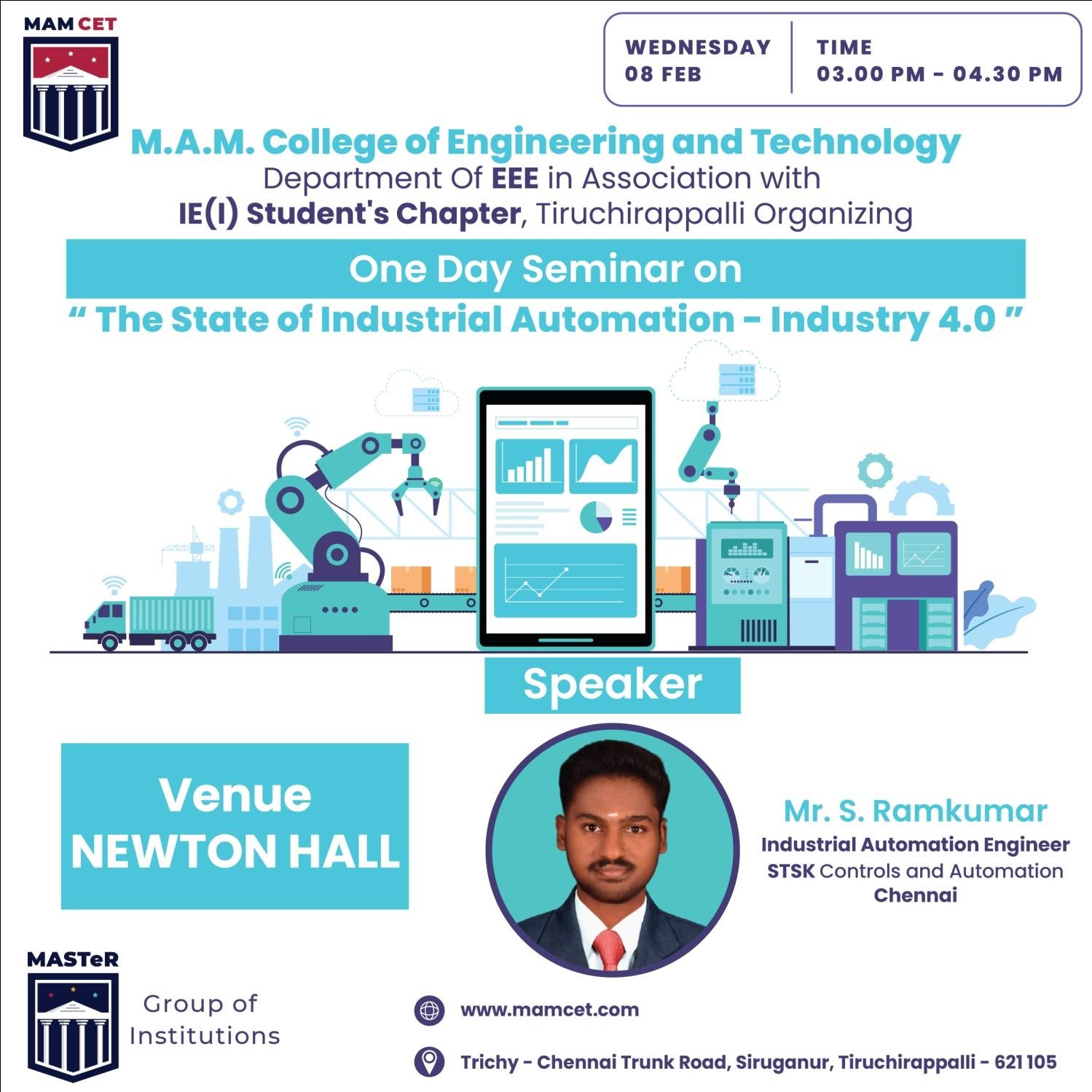
State of Industrial Automation-Industry 4.0
08/02/2023Resource person: S.Ramkumar, Industrial Automation Engineer/PLC&SCADA Developer
Beneficiary: II,III&IV Year
After Vision, Mission, PEO’s and PSO of EEE department was discussed, and it was followed by resource person Er.S.Ramkumar. He started the webinar by gave an introduction about Industrial Automation. He elaborately explained various types of automation used in various industries. He provides information of implementing automation in industry and offers information about components of automation and its inputs.Webinar 08/02/2023State of Industrial Automation-Industry 4.0
Resource person: S.Ramkumar, Industrial Automation Engineer/PLC&SCADA Developer Beneficiary: II,III&IV Year After Vision, Mission, PEO’s and PSO of EEE department was discussed, and it was followed by resource person Er.S.Ramkumar. He started the webinar by gave an introduction about Industrial Automation. He elaborately explained various types of automation used in various industries. He provides information of […]
-
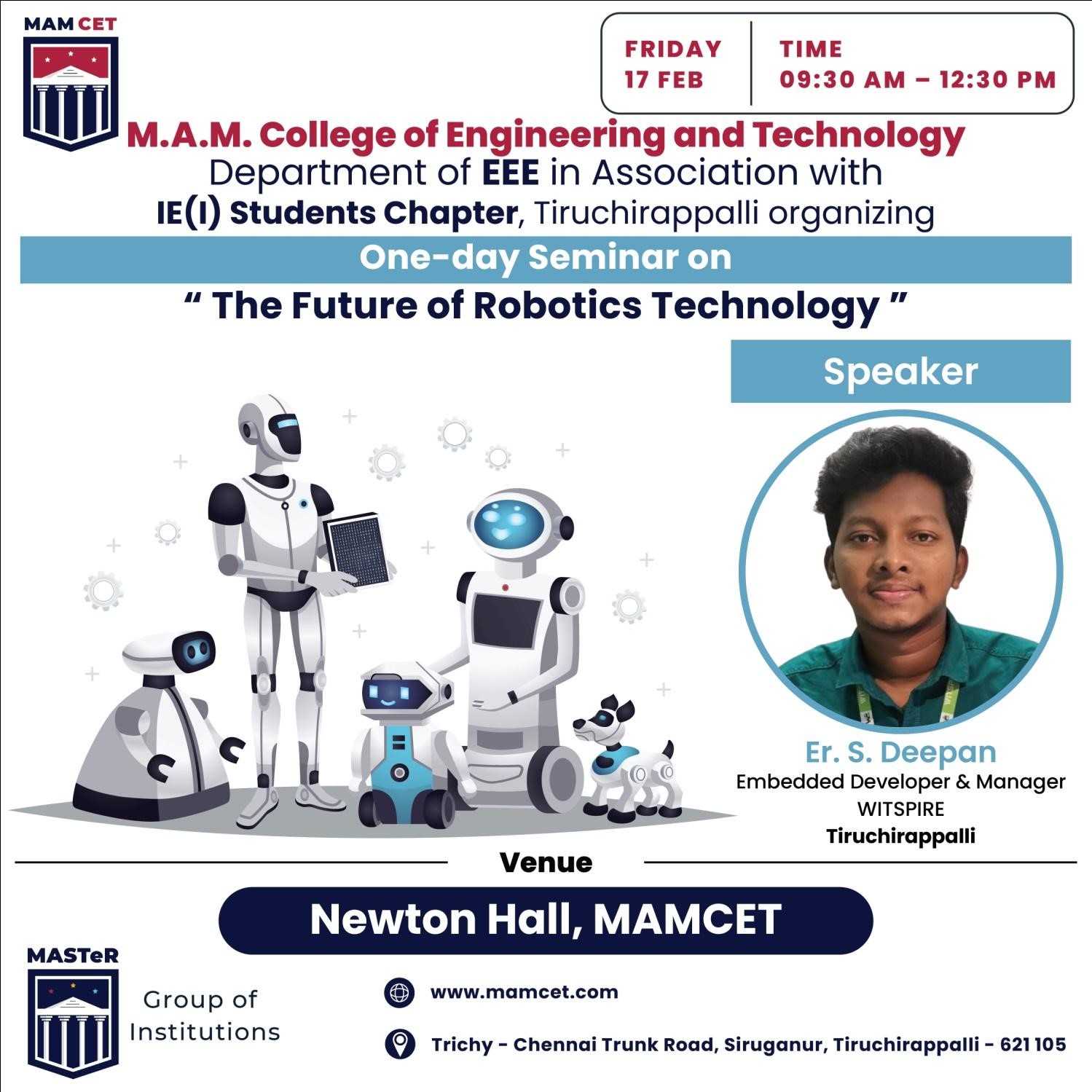
The future of Robotics Technology
17/02/2023Resource person: S.Deepan, Embedded Developer & Manager, WITSPIRE, Tiruchirappalli.
Beneficiary: II,III&IV YearAfter Vision, Mission, PEO’s and PSO’s of EEE department was discussed, and it was followed by resource person Er.S.Deepan .he started the webinar by gave an introduction about Robots and its evaluation. He elaborately explained various laws of robotics. He explains importance of robots in automation industries and offers information about various robots in recent field.
Seminar 17/02/2023The future of Robotics Technology
Resource person: S.Deepan, Embedded Developer & Manager, WITSPIRE, Tiruchirappalli. Beneficiary: II,III&IV Year After Vision, Mission, PEO’s and PSO’s of EEE department was discussed, and it was followed by resource person Er.S.Deepan .he started the webinar by gave an introduction about Robots and its evaluation. He elaborately explained various laws of robotics. He explains importance of […]
-
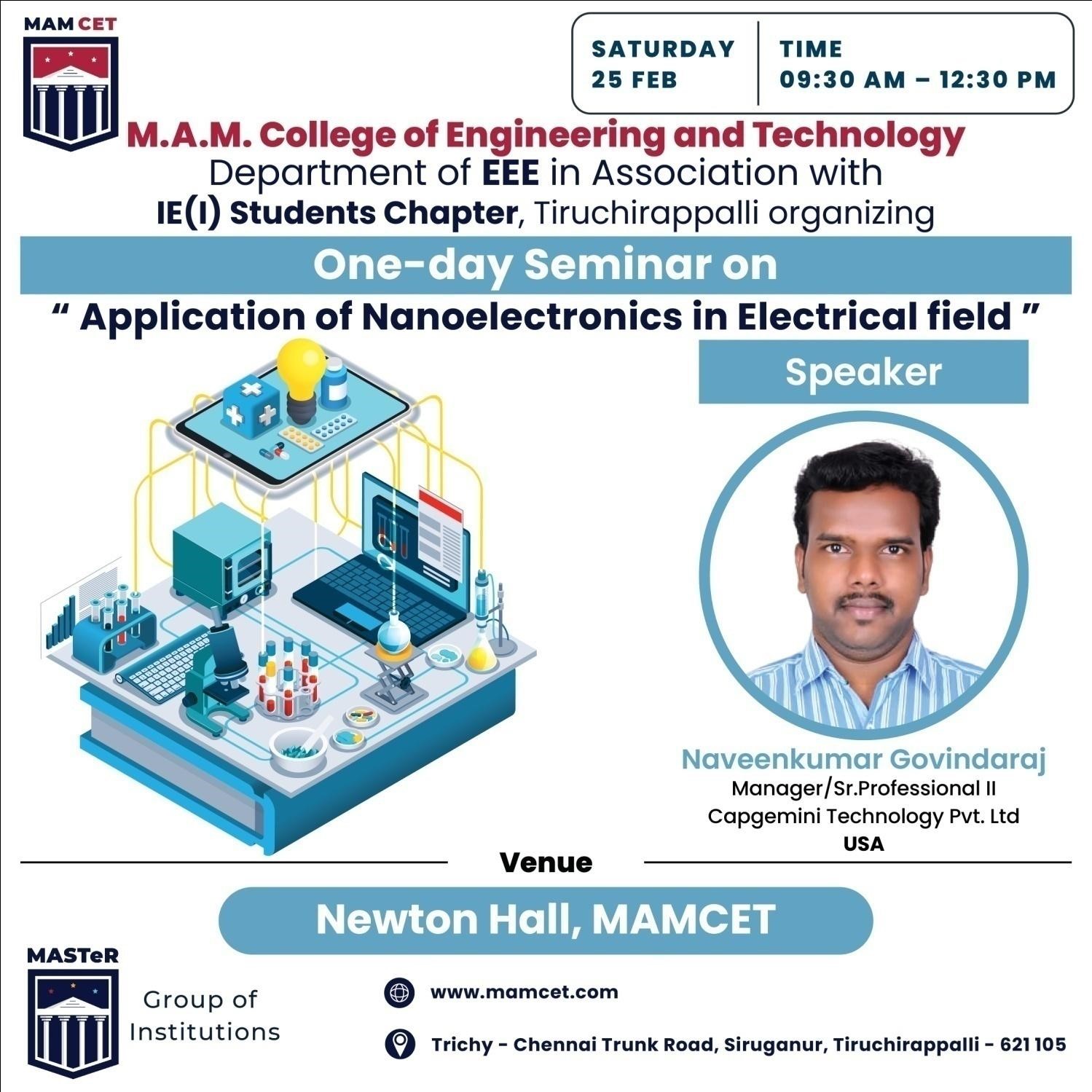
Application of Nano electronics in Electrical field
25/02/2023Resource person: Mr.NaveenKumar Govindaraj, Senior Testing Engineer, CTS, Bangalore
Beneficiary: II,III&IV Year
After Vision, Mission, PEO’s and PSO’s of EEE department was discussed and it was followed by resource person Er. G.NaveenKumar. He started the Seminar by giving an introduction about advancement in infotainment system. He detailed about services of infotainment system and its types. Then he elaborately discussed about manual and auto tuning systems. Further he moved to entertainment services in automatic cars. Then he explained about phone service provided in infotainment system. He also explained about rear parking assistance and navigation system. He gave detailed explanation about ADAS. Then he moved to antilock breaking system and adaptive cruise control. He also explained the concept of driver drowsiness detection system and emergency breaking system (EBS). Then he thoroughly explained about Intelligent speed assistance and pedestrian detection in automatic vehicle. Then he explained about the technology of autonomous car. After all he detailed about Google self driving car. Finally the seminar was end up with vote of thanks by the final year student/executive member M.Dinesh.Seminar 25/02/2023Application of Nano electronics in Electrical field
Resource person: Mr.NaveenKumar Govindaraj, Senior Testing Engineer, CTS, Bangalore Beneficiary: II,III&IV Year After Vision, Mission, PEO’s and PSO’s of EEE department was discussed and it was followed by resource person Er. G.NaveenKumar. He started the Seminar by giving an introduction about advancement in infotainment system. He detailed about services of infotainment system and its types. […]
-
Importance of Power Controllers in Space Applications.
17/03/2023Resource person: Shri.G.Balasubramanian, Deputy project Director, ISRO, Shriharokota
Beneficiary: II,III&IV YearSeminar 17/03/2023Importance of Power Controllers in Space Applications.
Resource person: Shri.G.Balasubramanian, Deputy project Director, ISRO, Shriharokota Beneficiary: II,III&IV Year
-
Recent Trends in EV and its Challenges
17/03/2023Resource person: Shri.G.Balasubramanian, Deputy project Director, ISRO, Shriharokota
Beneficiary: II,III&IV Year
The chief guest, Shri.G.Balasubramanian, Deputy Project Director, ISRO, Sriharikota shared wonderful words of encouragement with the students quoting the need to invest in improving the practical know-how of every engineering student apart from the theoretical knowledge they gain in the course of their study. He explained in detail about motor drive in aerospace technology. Further he detailed about satellite power system and electric propulsion system. Then he explained about on-board electric propulsions. Also he interacts with the students then he clarifies and answers the participants questions.Guest Lecture 17/03/2023Recent Trends in EV and its Challenges
Resource person: Shri.G.Balasubramanian, Deputy project Director, ISRO, Shriharokota Beneficiary: II,III&IV Year The chief guest, Shri.G.Balasubramanian, Deputy Project Director, ISRO, Sriharikota shared wonderful words of encouragement with the students quoting the need to invest in improving the practical know-how of every engineering student apart from the theoretical knowledge they gain in the course of their study. […]
-
Energy Conservation and Safety in Industries
01/04/2023Resource person: Shri.Magdaline Mary, Assistant Engineer, TNEB.
Beneficiary: II,III&IV YearSeminar 01/04/2023Energy Conservation and Safety in Industries
Resource person: Shri.Magdaline Mary, Assistant Engineer, TNEB. Beneficiary: II,III&IV Year
-
High voltage substation equipment, motor and generator: safety, operation and maintenance
21/04/2023Resource person: Er.Udaiyappan, AD/TNEB, Trichy.
Beneficiary: II,III&IV YearSeminar 21/04/2023High voltage substation equipment, motor and generator: safety, operation and maintenance
Resource person: Er.Udaiyappan, AD/TNEB, Trichy. Beneficiary: II,III&IV Year
-
Awareness on Entrepreneurship / Start Up
04/06/2021Shri Sahaya Josephraj,
Deputy General Manager (HR) Department
Oil and Natural Gas Corporation Limited (ONGC),KaraikalWebinar 04/06/2021Awareness on Entrepreneurship / Start Up
Shri Sahaya Josephraj, Deputy General Manager (HR) Department Oil and Natural Gas Corporation Limited (ONGC),Karaikal
-
Income through online
07/07/2021Mr.Mohamed Niyas, Alumni-2017, Department of EEE,MAMCET
CEO Tancube Marketing, KeralaWebinar 07/07/2021Income through online
Mr.Mohamed Niyas, Alumni-2017, Department of EEE,MAMCET CEO Tancube Marketing, Kerala
-
Electrical Engineering for the future Horizon
21/08/2021Dr.B.Muruganantham,
Registrar-MASTeR Group of InstitutionsWebinar 21/08/2021Electrical Engineering for the future Horizon
Dr.B.Muruganantham, Registrar-MASTeR Group of Institutions
-
Wireless LAN & Automotive Infotainment System
28/08/2021Mr.Naveen Kumar Govindaraj,
Tech Lead,
Capgemini Engineering,
Bangalore, IndiaWebinar 28/08/2021Wireless LAN & Automotive Infotainment System
Mr.Naveen Kumar Govindaraj, Tech Lead, Capgemini Engineering, Bangalore, India
-
Erection and commissioning of Solar Panel
04/09/2021Er.G.Sivabalan,
Sr. Project Engineer, Gensol Solar Engineering Pvt Ltd.04/09/2021Erection and commissioning of Solar Panel
Er.G.Sivabalan, Sr. Project Engineer, Gensol Solar Engineering Pvt Ltd.
-
Testing and Commissioning of substation equipments
24/09/2021Er.A. Abdhaheer,
Sr. Testing and Commissioning Engineer
SPK Power infra–Pvt Ltd.Hands on training 24/09/2021Testing and Commissioning of substation equipments
Er.A. Abdhaheer, Sr. Testing and Commissioning Engineer SPK Power infra–Pvt Ltd.
-
Industrial Networking for Control and Automation
22/10/2021Dr. A. Lakshmi Sangeetha.
Assistant professor.
Velammal Engineering College, Chennai.Webinar 22/10/2021Industrial Networking for Control and Automation
Dr. A. Lakshmi Sangeetha. Assistant professor. Velammal Engineering College, Chennai.
-
Overview of Industrial Automation
29/10/2021S.Ramkumar,
Industrial Automation Engineer/PLC&SCADA DeveloperWebinar 29/10/2021Overview of Industrial Automation
S.Ramkumar, Industrial Automation Engineer/PLC&SCADA Developer
-
Electric transportation in infrastructure for e-mobility’
12/11/2021Mr.M.Vinothkumar
Assistant Professor/EEE
MAMCETWebinar 12/11/2021Electric transportation in infrastructure for e-mobility’
Mr.M.Vinothkumar Assistant Professor/EEE MAMCET
-
Recent Trends in Smart Grid Technology
29/04/2022Dr.R.Gnanadass
Professor/Department of EEE, Puducherry Technological University
PondicherryWebinar 29/04/2022Recent Trends in Smart Grid Technology
Dr.R.Gnanadass Professor/Department of EEE, Puducherry Technological University Pondicherry
-
The Institution of Engineers (India) – Student Chapter
04/05/2022Mrs. Merlin Mary N J
Ph. D. Scholar
(Prime Minister’s Research Fellows)
National Institute of Technology, Trichy.Webinar 04/05/2022The Institution of Engineers (India) – Student Chapter
Mrs. Merlin Mary N J Ph. D. Scholar (Prime Minister’s Research Fellows) National Institute of Technology, Trichy.
Curriculam & Syllabus
Memorandum of Understanding (MOU)
The industry supported laboratories develop the best learning process using a comprehensive understanding of industry’s best practices for both students and faculty. To strengthen interaction with industries and to keep our students updated with the latest trends in Electrical Engineering.
Industry supported Laboratories
Sl.No |
Name of the company |
Name of the laboratory |
Year |
|---|---|---|---|
|
1 |
Flowtrik EV charging solutions |
EV Laboratory - II |
2023 |
|
2 |
EV Nexus Pvt.Ltd. |
EV Laboratory - I |
2023 |
MoU of Core industries
Sl.No |
Name of the company |
Year of MOU Sign |
|---|---|---|
|
1 |
Flowtrik EV charging solutions |
2023 |
|
2 |
EV Nexus Pvt.Ltd. |
2023 |
|
3 |
Propeller Technologies |
2022 |
|
4 |
Jet Aero Space |
2022 |
|
5 |
Hilife.AI |
2022 |
|
6 |
Eurocasting Engineering |
2021 |
Industry Interaction
In-Plant Training
S.NO | Name of the Event | Date | Resource Person/ company details | Targeted Audience |
1 | Guest Lecture on Recent trends in EV and its challenges | 3.03.2023 | Dr. K. Padmanabhan,Director ,EV NEXUS Pvt. Ltd. | Second year, Third year and Final year |
2 | Seminar on Design and modeling of E-Vehicle. | 18.08.2022 | Er. A. Abdhaheer, Sr. Testing and Commissioning Engineer, SPK Power infra–Pvt Ltd. | Second year, Third year and Final year |
| S.NO | Name of the Event | Date | Resource Person/ company details | Targeted Audience |
| 1 | Guest lecture on Fundamentals in Ethics of Technology. | 16.04.2021 | Mr. Naveen Kumar Govindaraj,Senior Testsing Engineer,CTS, Bangalore | Second year, Third year and Final year |
| 2 | Guest lecture on Industrial Automation Using PLC | 04.02.2021 | Mr.Rasadurai Murugesan,Lead Engineer from GM Tech center India ,Bangalore. | Second year, Third year and Final year |
| 3 | Webinar on Introduction to LABVIEW | 21.06.2020 | Ms.J.Ajantha Patent scientist,Dextrasys Private Limited. |
Second year, Third year and Final year |
Industrial Visit
S.No | Academic Year | Industry Name with Address | Area of visit | No. of students participated | Type of Industry (Core/Non-core) |
1 | 2021-2022 | Munnar Tea Factory, Munnar | Electrical Drives and Control | 79 | Core |
2 | 2022-2023 | Sandal Wood Oil Division, Mysore, Karnataka | Industry Automation | 55 | Core |
3 | 2022-2023 | TATA Solar Power Plant, Musiri(Tk), Trichy | Solar Power Plant Operation and maintenance | 79 | Core |
Internship Details
S.No | Name of the Company | Internship Details | No. of students participated |
1 | Vagus technology, Trichy. | Digital Marketing | 6 |
2 | Witspire, Trichy | Basic Embedded System | 10 |
3 | Dynamic hands and control ltd. Chennai. | Electrical Division | 1 |
4 | Power Integrated salutation, Trichy | Electrical Division | 4 |
5 | AJ Tech research lab, Coimbatore | Marketing | 1 |
6 | Code Bind Embedded system, Trichy. | sic Embedded System and IoT | 1 |
S.No | Name of the Company | Internship Details | No. of students participated |
1 | CRI Pumps,Coimbatore | Electrical Division | 4 |
2 | ABC Programming,Chennai | Digital Marketing | 1 |
3 | Muskurahat Foundation,Mumbai,Maharastra. | Crowd Funding | 1 |
4 | Maxelerator Foundation,Madurai. | Basic Embedded sytem and IOT | 1 |
5 | Hamari Pahchan NGO | Social Entrrpreneurship | 1 |
S.No | Name of the Company | Internship Details | No. of students participated |
1 | PT series,Chennai. | Marketing | 1 |
2 | Lead And Seal,Chennai. | Core | 1 |
3 | Global Marketing Media,Pune. | Marketing | 1 |
4 | Amazon private limited,Trichy | Marketing | 1 |
MEGAZINE
Value Added Courses
Title: Hands on Training on CST Antenna Designing Tool
Resource Person :
Mrs. S. Kavitha, Associate Professor, Department of ECE, M.A.M College of Engineering and Technology, Siruganur, Tiruchirappalli.
Date: 09-03-2022
Title: VHDL/Verilog Programming Techniques for IC Design
Resource Person :
- Ms. S. Devi Poonguzhali, Assistant Professor, Department of ECE, M.A.M College of Engineering and Technology, Siruganur, Tiruchirappalli.
- Ms. A. Kaviya, Assistant Professor, Department of ECE, M.A.M College of Engineering and Technology, Siruganur, Tiruchirapplli.
Date: 10-03-2022
Title: Introduction to Scilab Programming Techniques
Resource Person :
- Mr. B.Syed Moinuddin Bokhari, Associate Professor, Department of ECE, M.A.M College of Engineering and Technology, Siruganur, Tiruchirappalli.
- Mr M.Syed Abdul Salam, Associate Professor, Department of ECE, M.A.M College of Engineering and Technology, Siruganur, Tiruchirapplli.
Date: 11-03-2022
Get in touch
Mr.Gopalsamy.P
Assistant Professor /HOD, MAMCET, Trichy.
MAIL ID: hod.civil@mamcet.com
Mobile no : 9942123722


